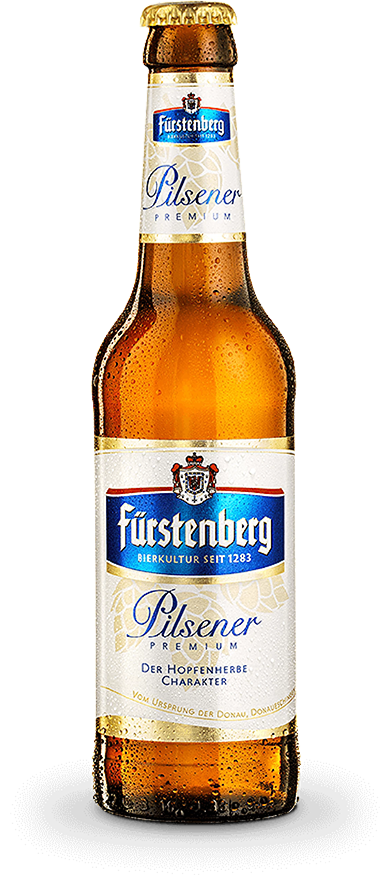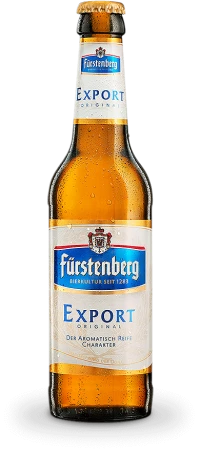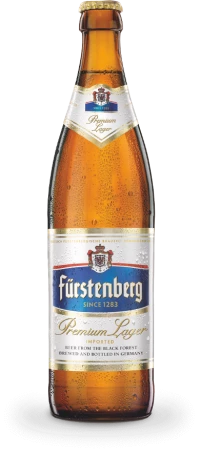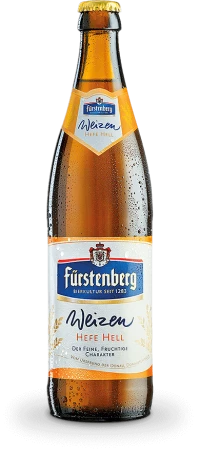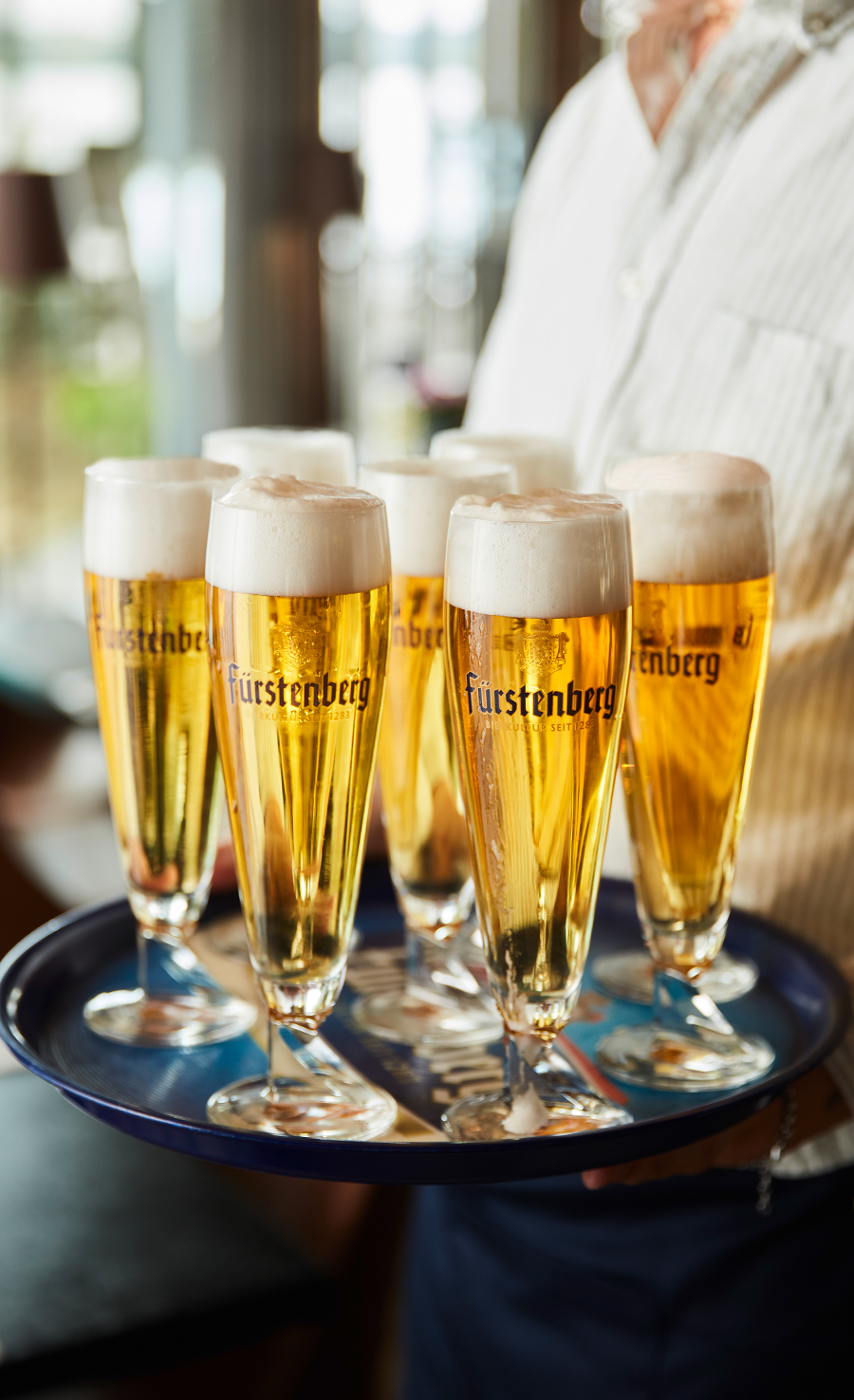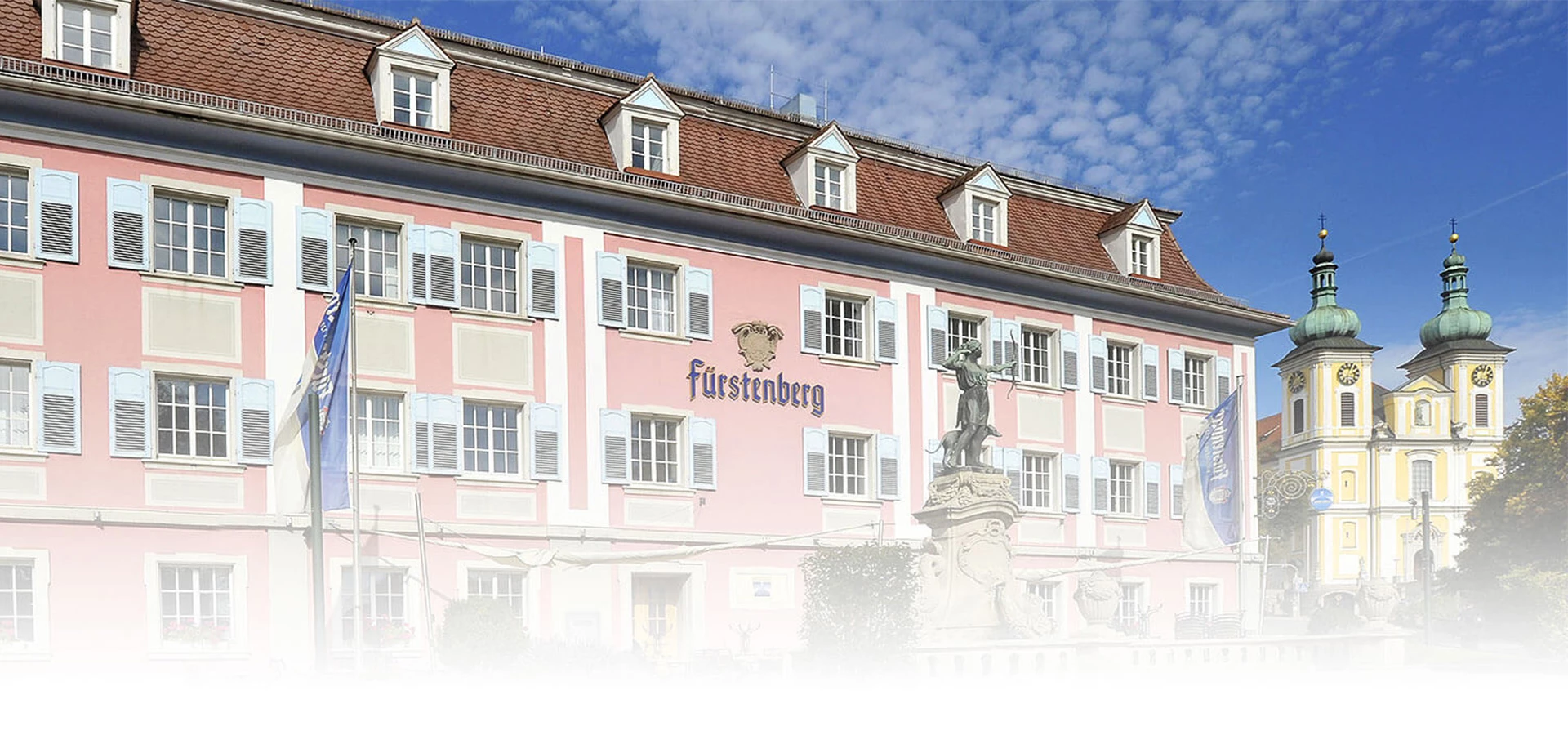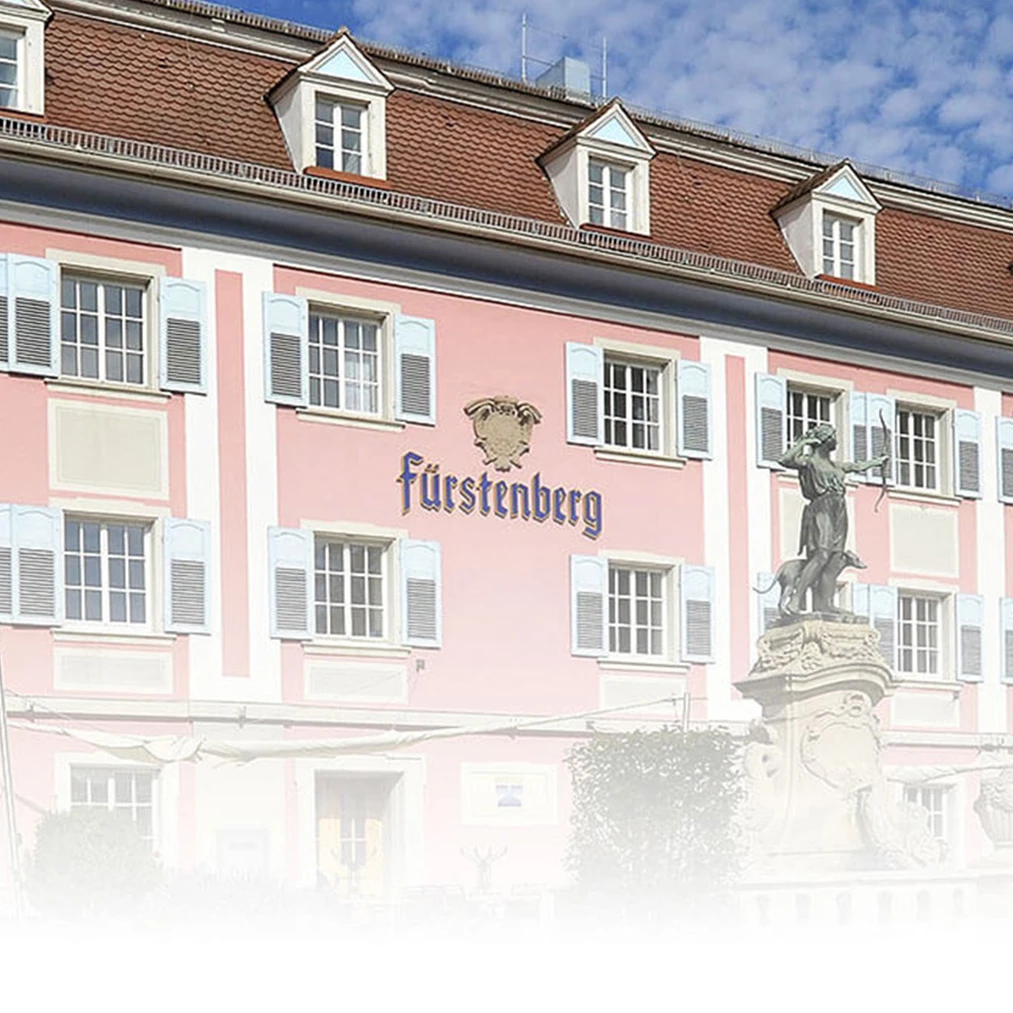WELCOME AT FÜRSTENBERG
The royal Fürstenberg brewery GmbH & Co. KG from Donaueschingen is the oldest brewery in Baden-Württemberg. Since 1283, the name Fürstenberg has stood for the fine art of brewing beer. Throughout the centuries a unique beer culture has taken shape that receives the greatest recognition far beyond the south of Germany. And the tradition lives on: With a wide range of different beer specialties, the brewery leaves nothing to be desired. Our Fürstenberg Premium Pilsener sets the benchmark for outstanding beer enjoyment with its pleasantly sharp and hop-fresh notes. With the full-bodied Premium Lager and our sparkling-fresh wheat beers, Fürstenberg embodies a unique diversity in beer culture. Whether for catering, at home or festive occasions: Fürstenberg influences the unique lifestyle of the south.
History
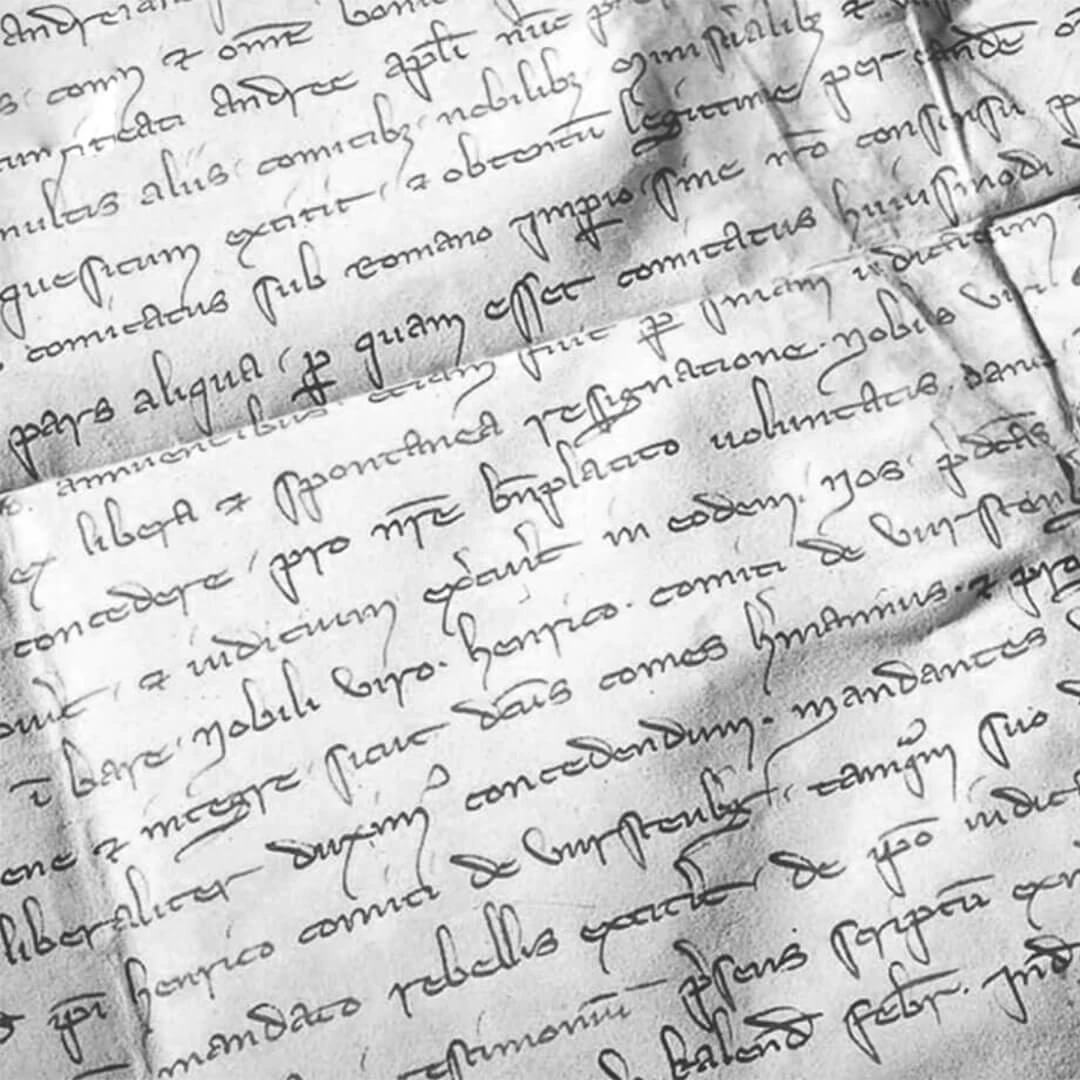
The Birth of Fürstenberg Beer
The 13th century - It was a time of crusades, Marco Polo’s journey to China and the founding of Swiss Confederation... and the date on the official birth certificate of Fürstenberg beer. On January 18, 1283, King Rudolf I von Habsburg granted the lands and rights for Baar and Tunôeschingen - now known as Donaueschingen - in fief to Count Heinrich I von Fürstenberg. This included the right to brew beer and to issue concessions for brewing and serving food and drink and to regulate, tax and levy duties on brewing and the serving of food and drink.
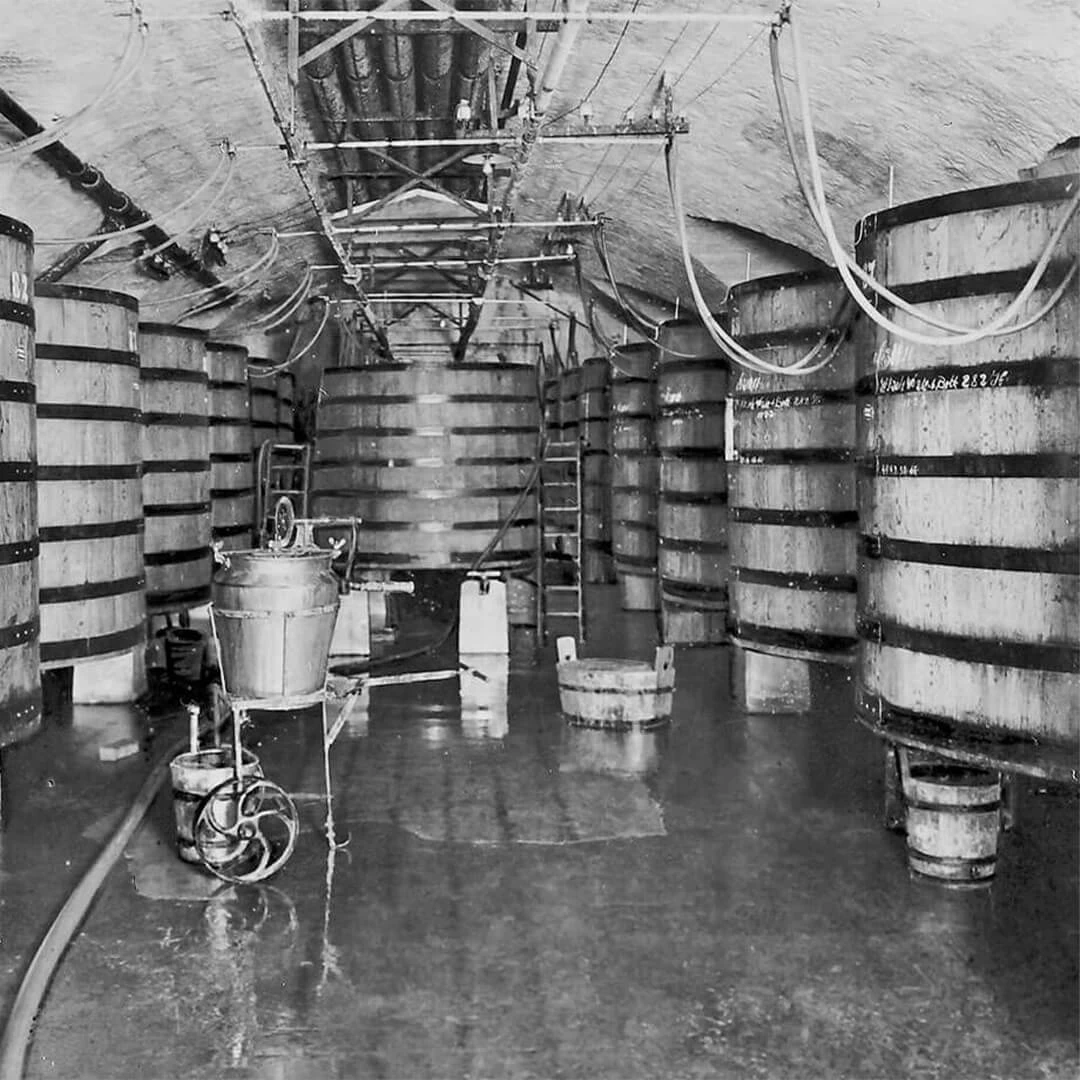
A Brewery with Two Beers
There were three proprietors in Donaueschingen at that time and all three were required to pay a “fee” to the Fürstenbergs for every serving of beer that they sold. The brewery was already producing two different types of beers at that time.
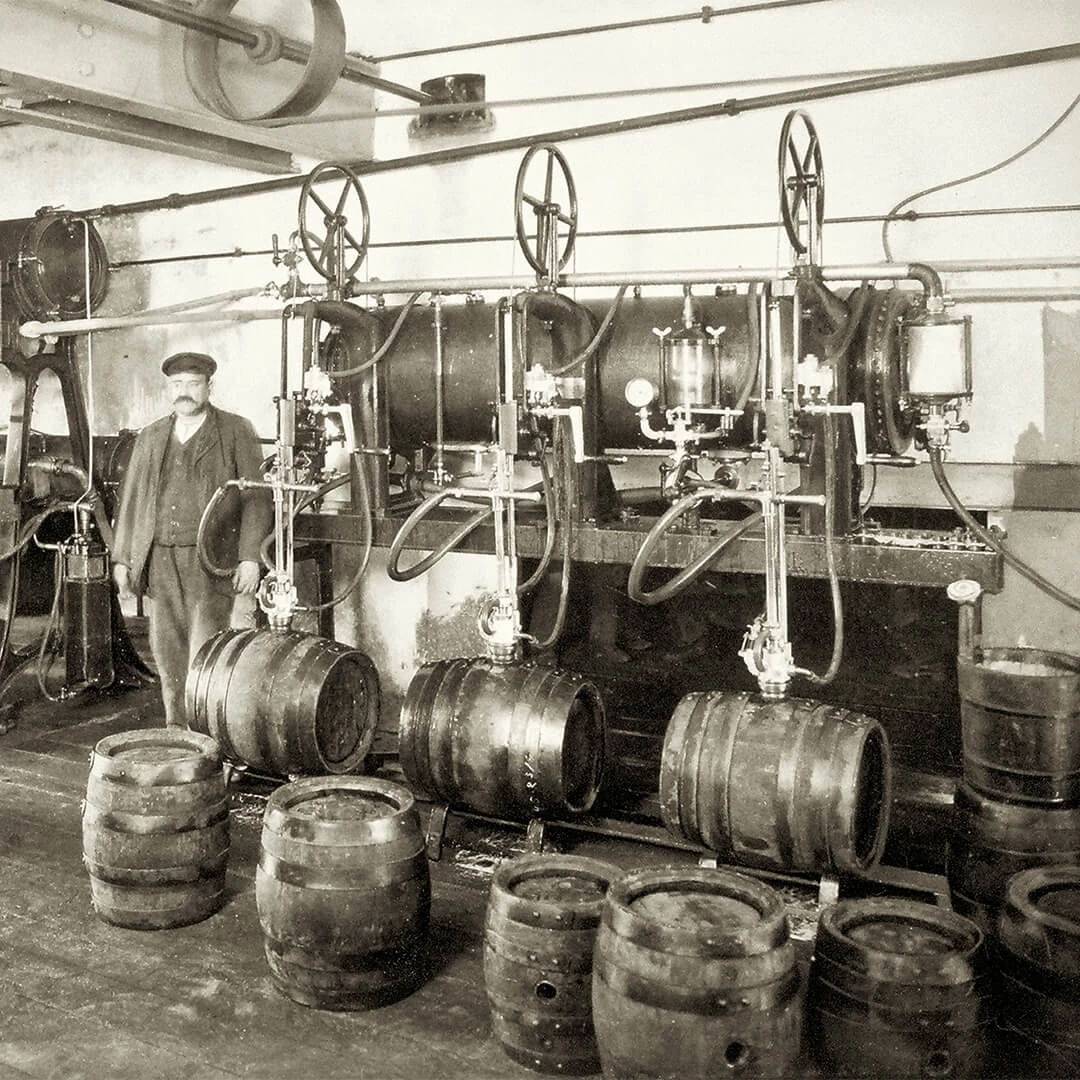
A Break from Beer
Various wars cause grain and malt prices to rise considerably and German beer becomes far more expensive than wine. As a result, the Fürstenberg brewery stops working for five years. Under Prince Anton Egon zu Fürstenberg, beer is brewed again in Donaueschingen, mainly Ordinaribier, a top-fermented wheat beer, as well as Märzen and Doppelbier
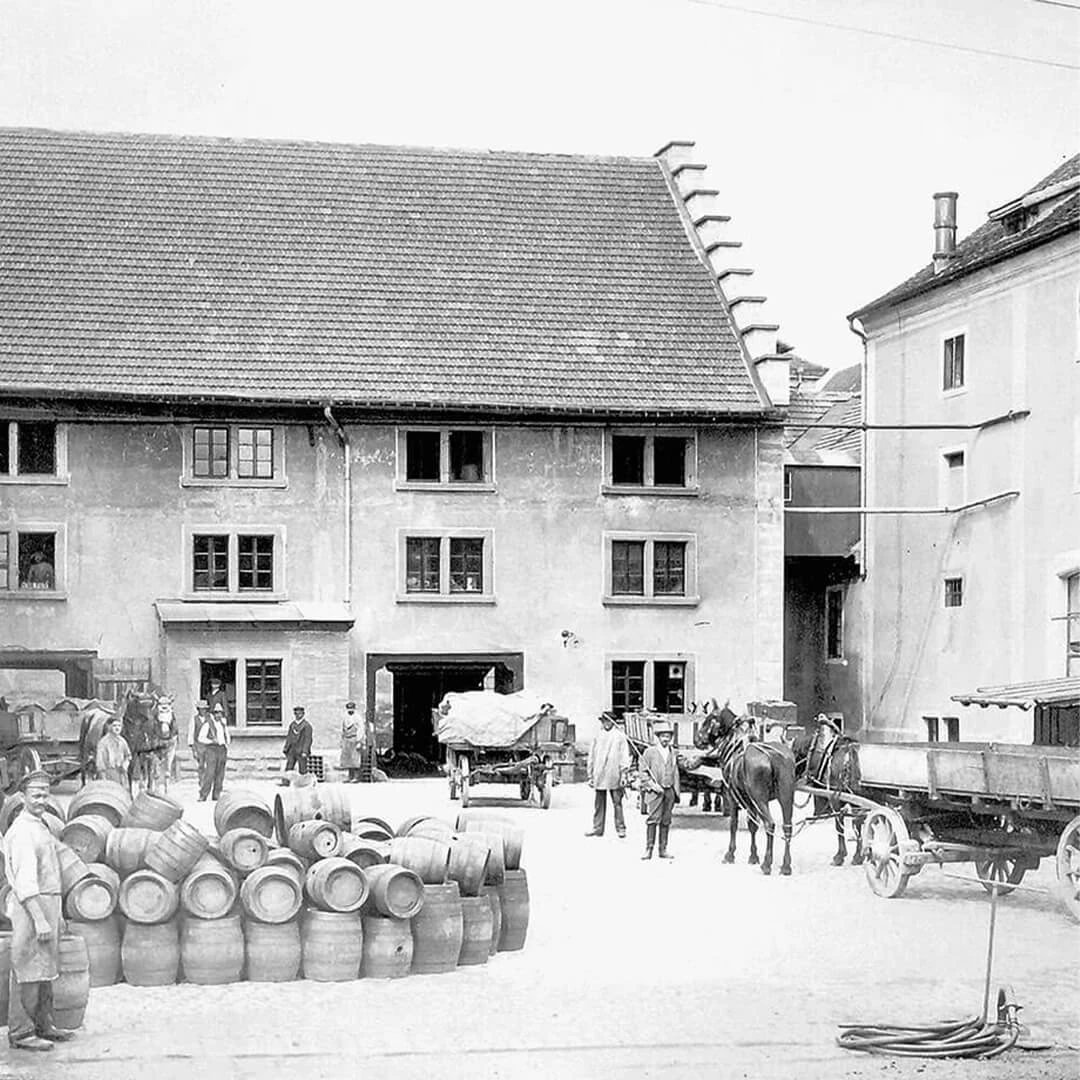
Growth and Rebuilding
After Count Joseph Wilhelm Ernst zu Fürstenberg moved his seat of power to Donaueschingen, the demand for our beer started to grow. Construction of the new brewery began in 1739 and the brewery hasn’t moved since.
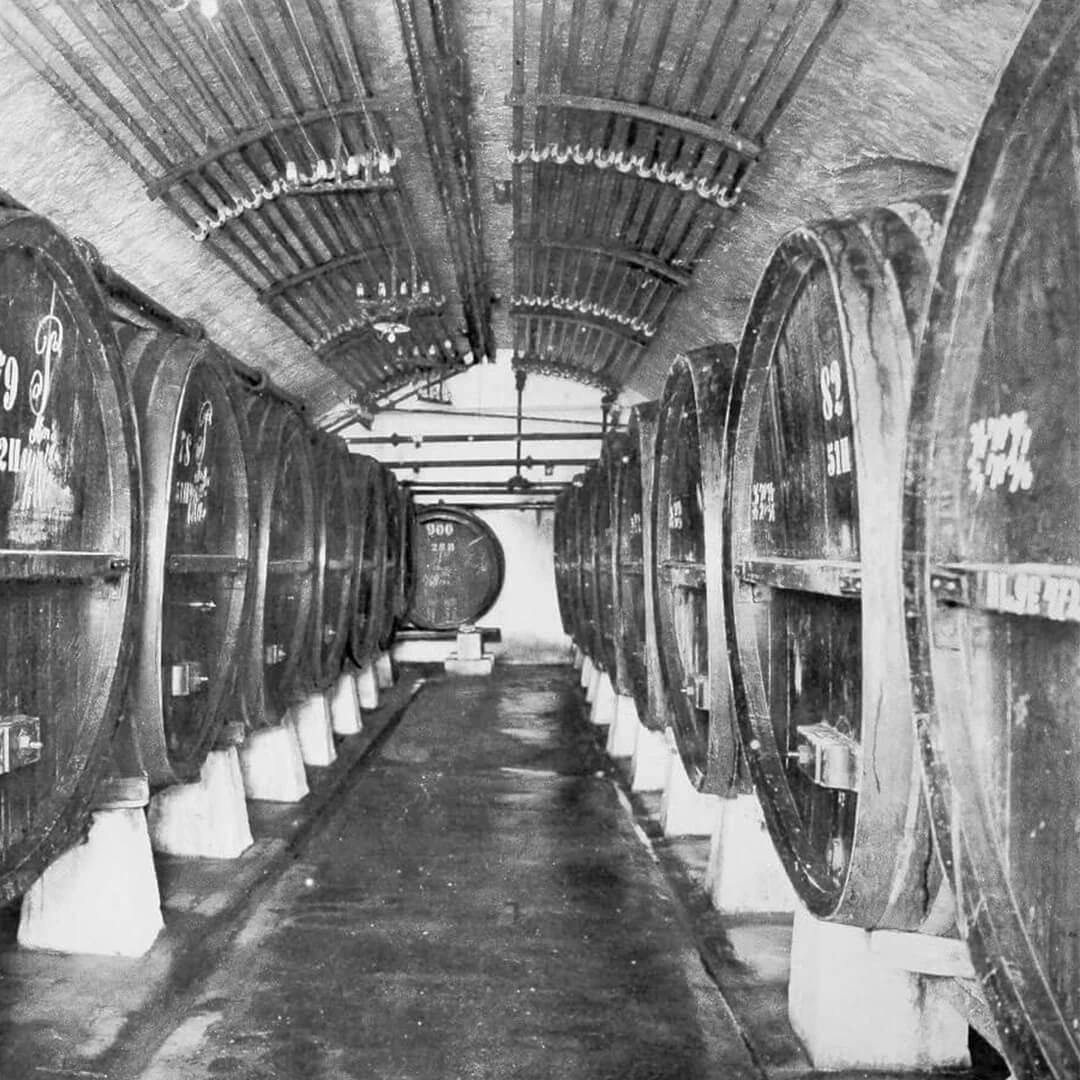
We Create “Luftbier”
For the first time, a top-fermented beer made of wheat and barley malt known as “Luftbier” or “air beer” is brewed. This beer was similar to the wheat beer we brew today. According to historical writings, one reason why this air beer was brewed was “... to produce this tasty drink in order to maintain the full faith and credit of the brewery and to push back against the many breweries that have sprung up nearby that are unable to brew such a beer.” Competitiveness is not a modern invention. Even back then it was important to set yourself apart from the competition. Additionally, only “local” barley has been used at the brewery since the year 1801. Fürstenberg has sourced its ingredients from the region for more than 200 years. This not only helps promote the regional economy, but also helps protect our environment.
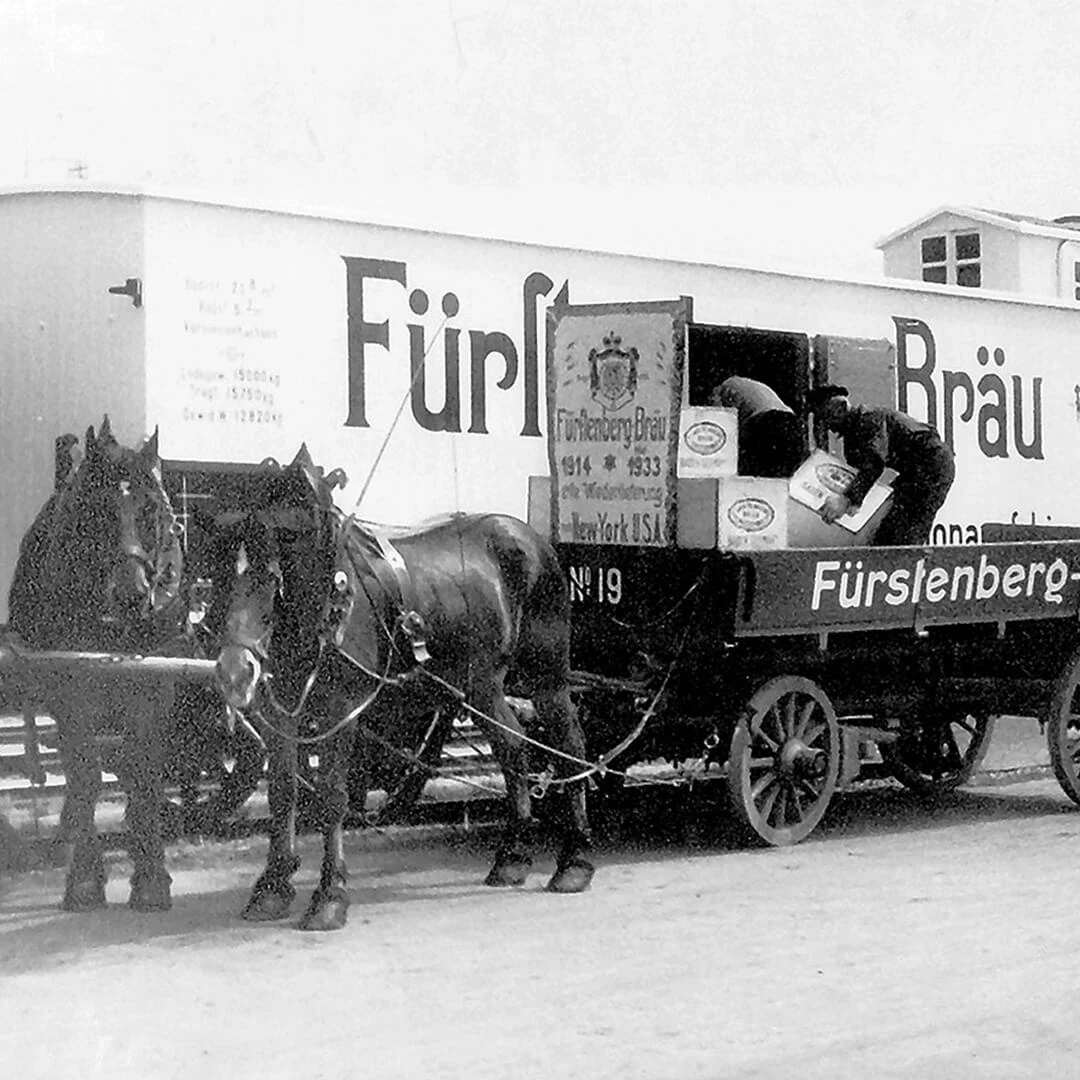
Fürstenberg Conquers Europe
In 1868 the railroads came to Donaueschingen. The brewery was finally able to cut transport costs and expand its distribution. The first exports were sent off to Switzerland. And it wasn’t long before Fürstenberg beer was available in Paris.
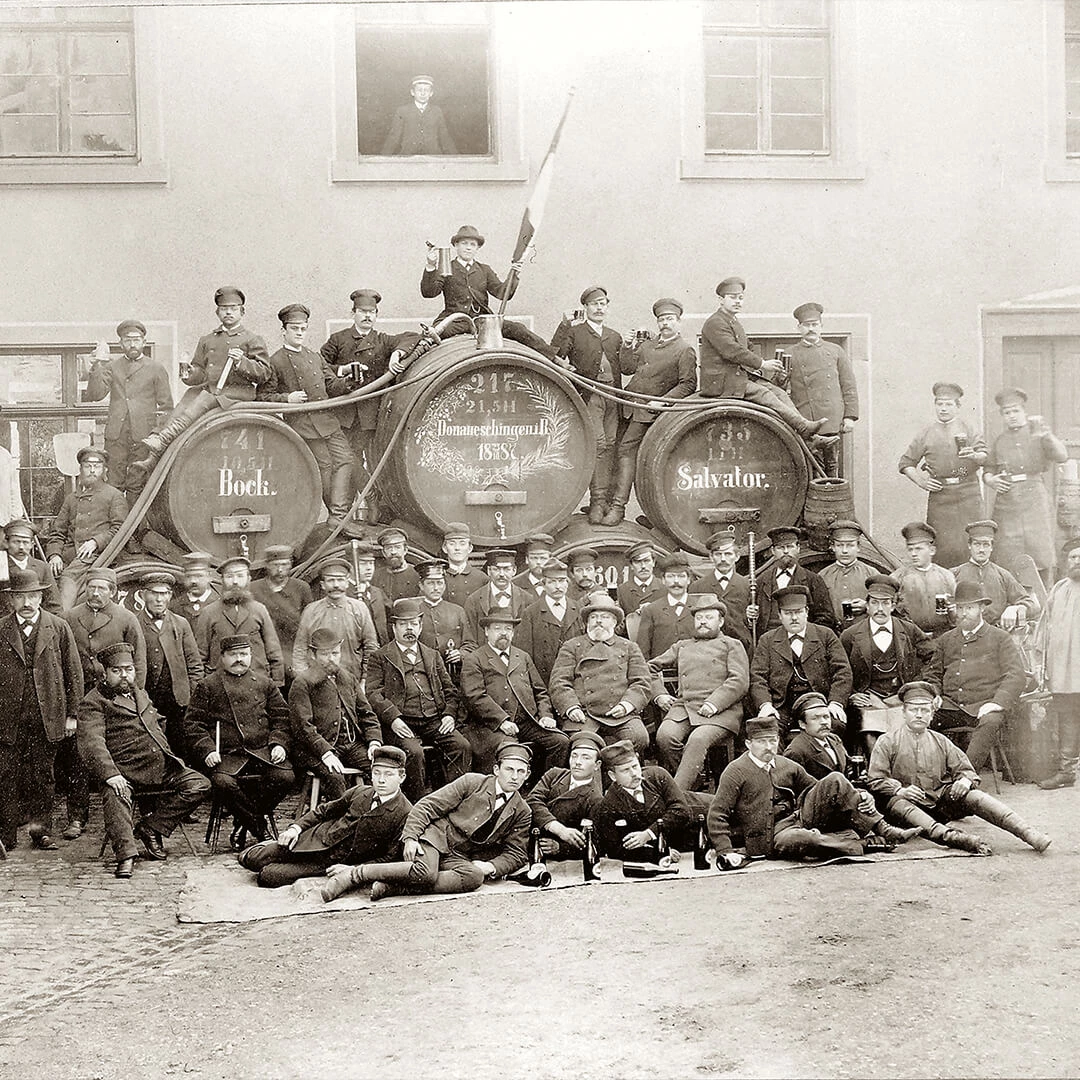
Bismarck’s Favorite
The Fürstenberg Brewery got a very innovative new master brewer when Josef Munz came on board. Two years after joining the brewery, he discovered a way to make a specialty beer. This gold-colored, Vienna-style brew known as “Salvator” or “Danubia Export Beer” found fans from Germany to Brazil. Reich Chancellor Bismarck named it his favorite drink. His personal physician, Dr. Schweninger, called it the “beer of beers” and a German spiritual leader even went so far as to call it “the true drink of the gods”.
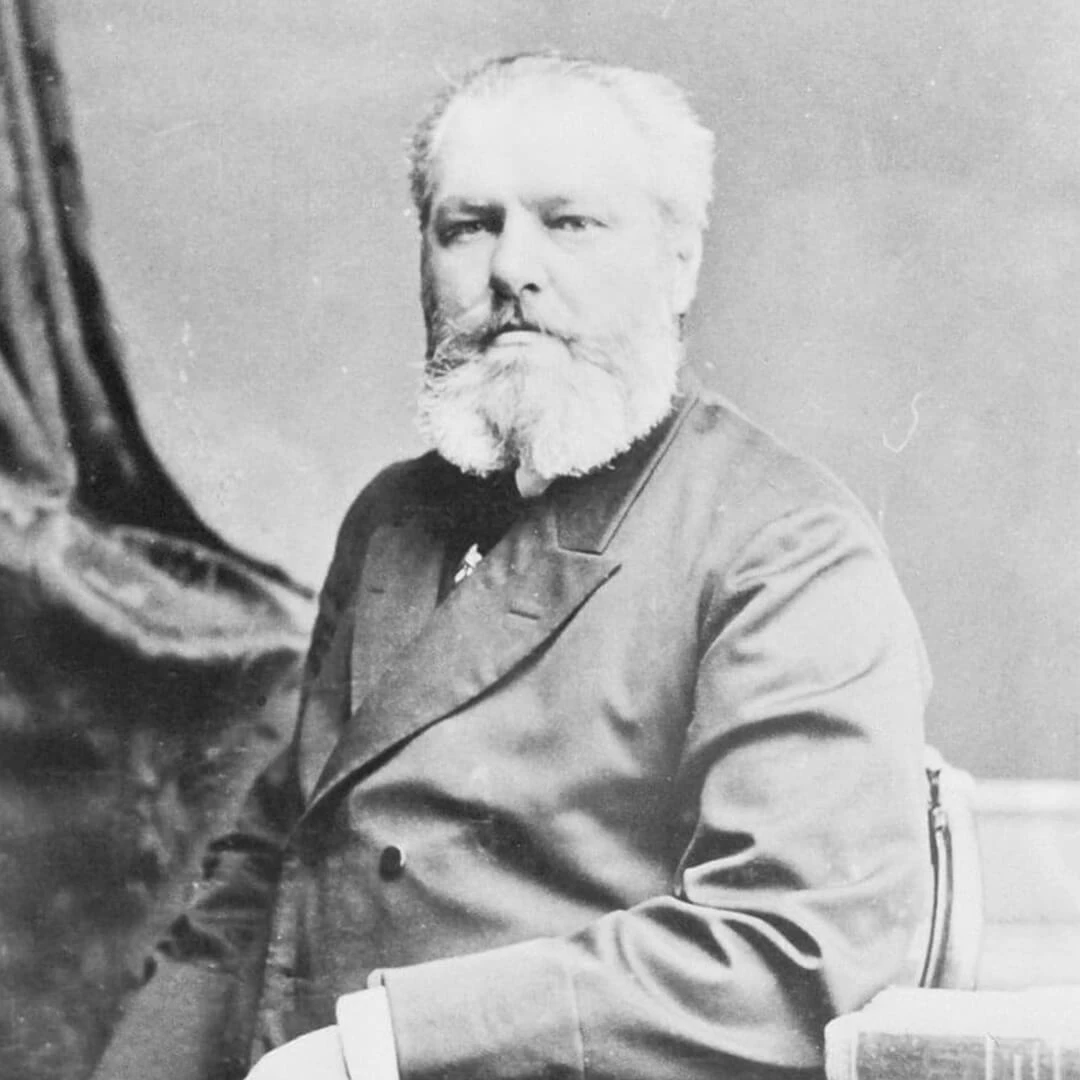
The Birth of Premium Pilsener
Josef Munz is one of the first brewers in Germany to successfully brew a pilsener beer. Originally called the “Bohemia” and then “Pale Fürstenberg Brew”, it is now known as our “Premium Pilsener”. This light lager is made of the finest barley, the best hops and the extraordinarily soft water from the brewery’s own sprin
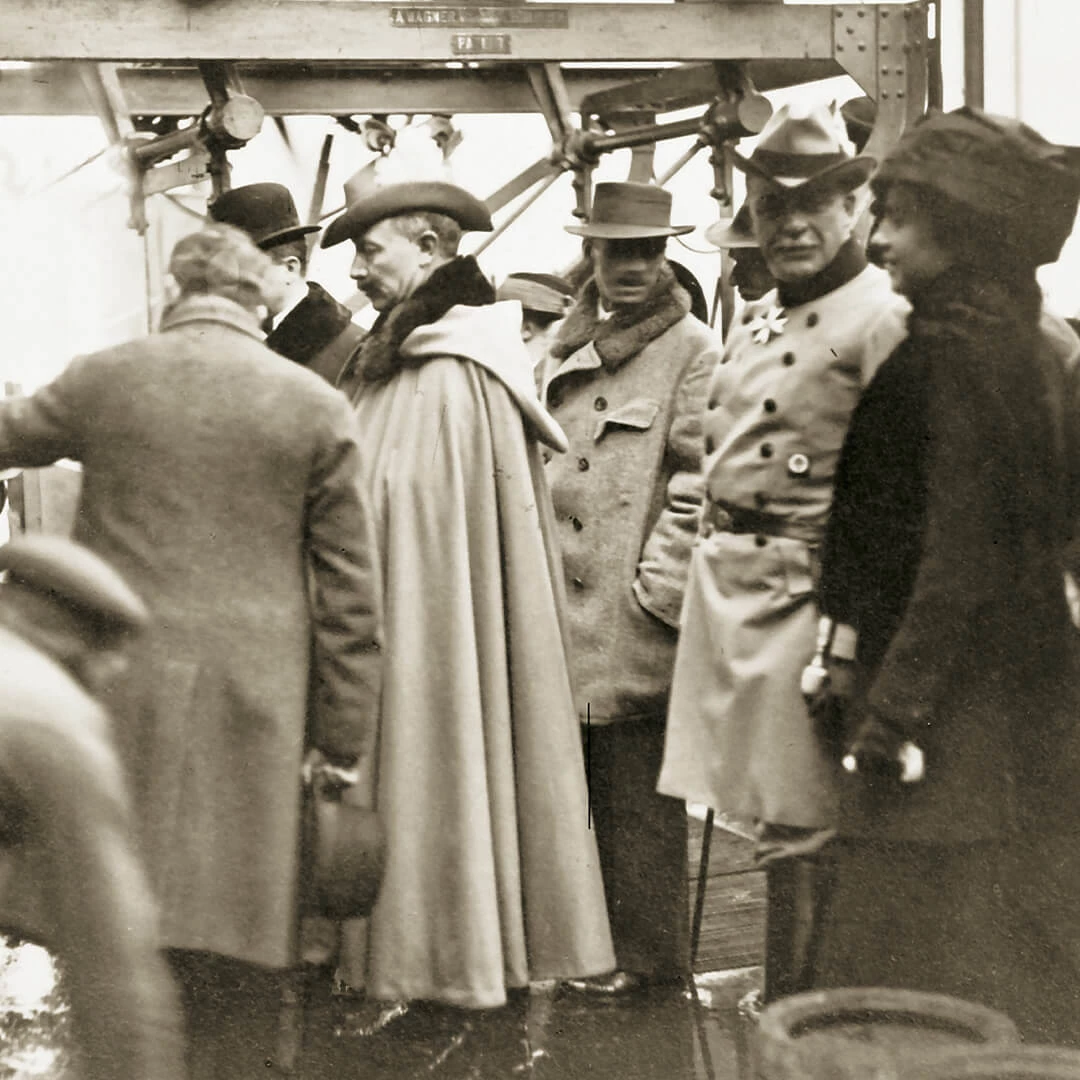
His Majesty’s Beverage
In April of 1900 Emperor Wilhelm II arrived in Donaueschingen. He enjoyed the Fürstenberg Brew so much that he designated it his go-to drink, which was how it got its honorable title of “His Majesty’s Beverage.” After receiving such noble recognition, Fürstenberg grew into a major brewery and was soon delivering beer to more than 900 bars and restaurants in all of Germany. The brewery’s products were also sold in the Netherlands, Britain, France, Belgium, Italy and Switzerland. Major shipping companies, the Imperial Navy and the colonial administration bodies in Africa regularly purchased Fürstenberg beer. Even the zeppelin lines carried Fürstenberg on board.
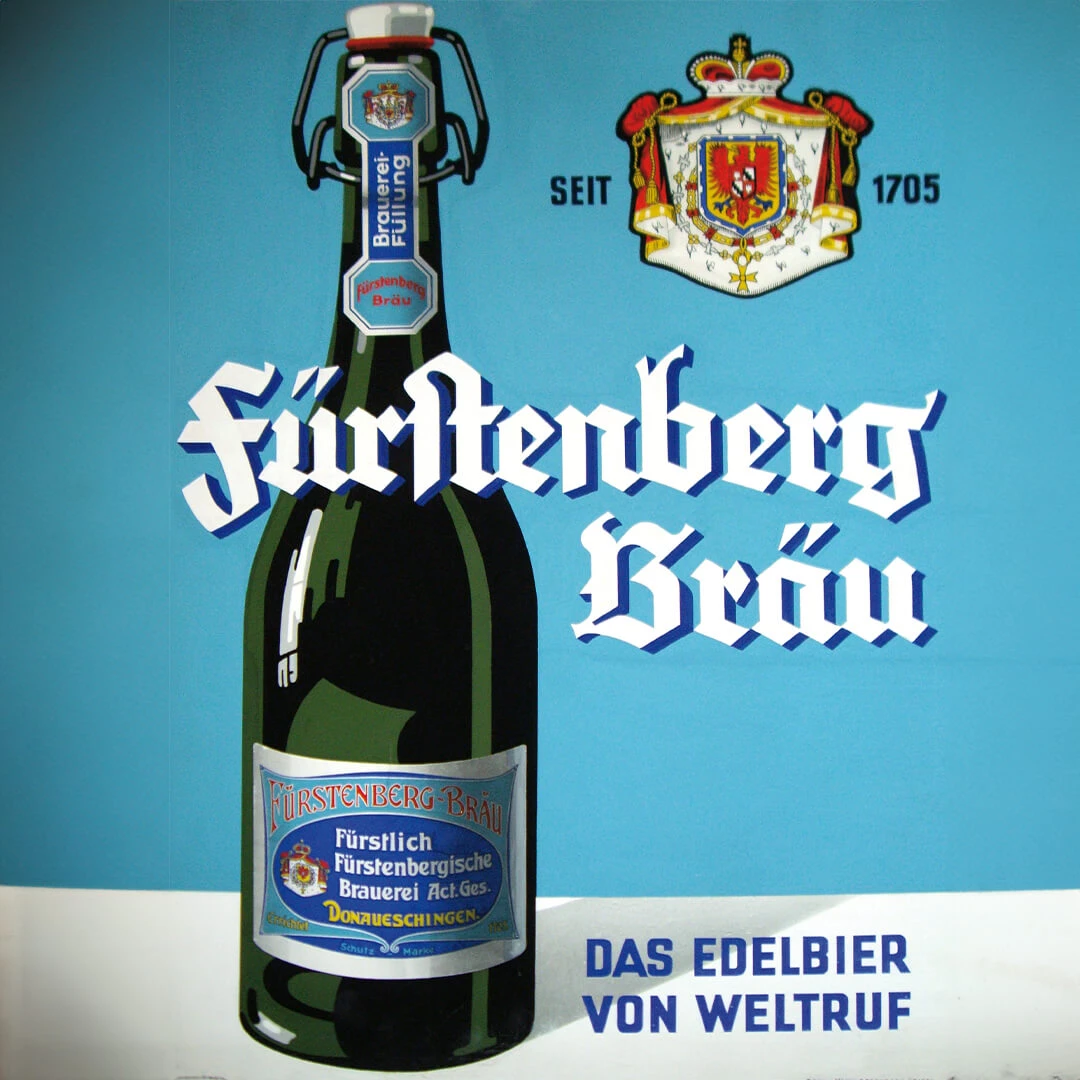
“Gold Rush”
The two world wars caused a major setback in the brewery’s growth, but things started to pick up again afterwards. In 1953 the brewery introduced a new beer, the “Gold Special Beer,” which was the forerunner of today’s Premium Lager. The product line also included the pale “Fürstenberg Brew,” the dark “Antonius Brew,” the “Gustator” lager and the “March” beer with the red Vienna markings.
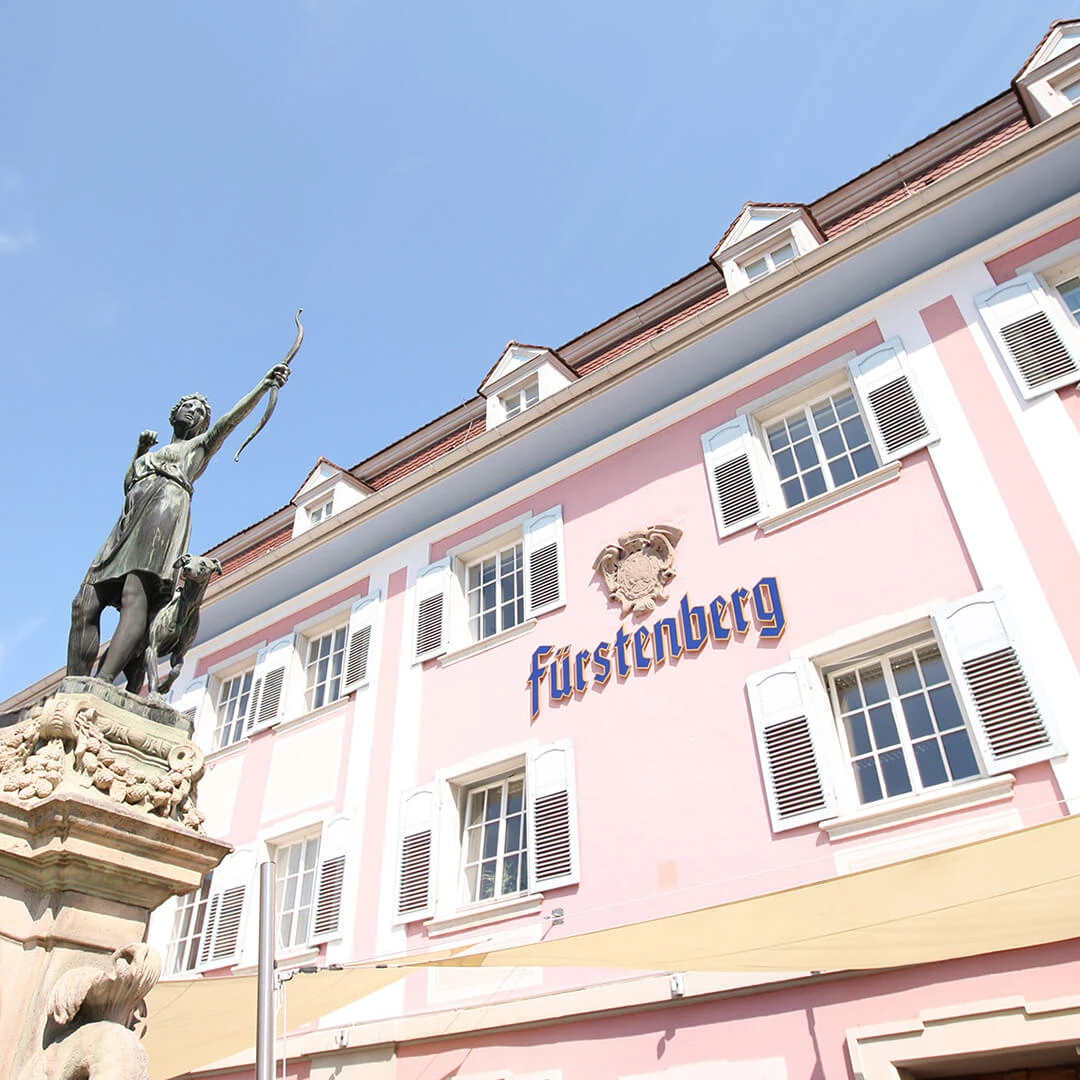
„Fürstenberg is Premium“
Fürstenberg Pilsener is one of the few German beers to receive the honorable “Premium” distinction. During the 80s Fürstenberg continued its tradition of innovation and introduced “Fürstenberg Free,” one of the first non-alcoholic beers in Germany.
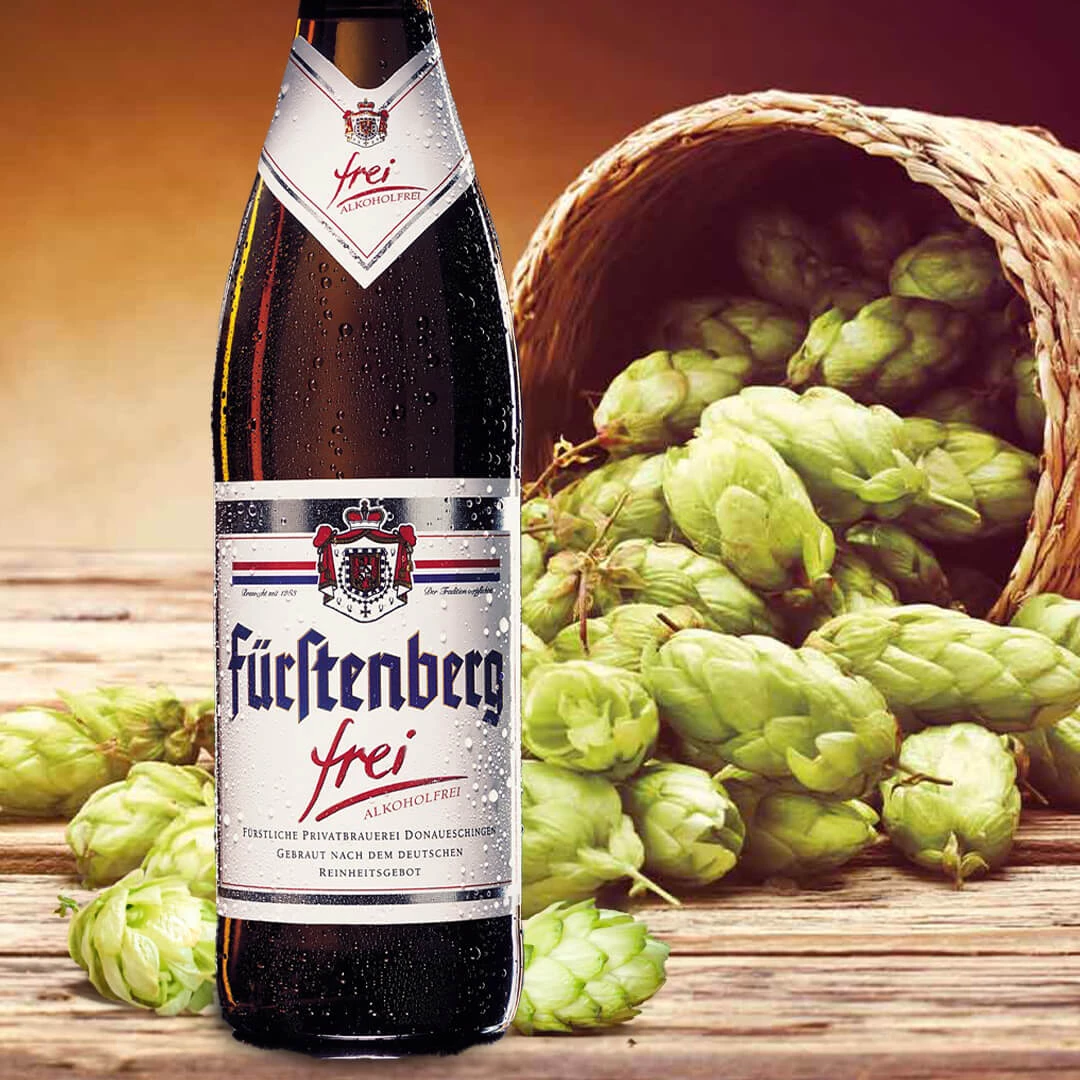
Fürstenberg alcohol-free
In the 1980s, the Fürstenberg Brewery continues to be innovative as usual and in 1988 Fürstenberg Frei is launched, one of the first non-alcoholic beers in Germany.

First Certifications
In 1993 Fürstenberg became one of the first German brewing companies to receive DIN EN ISO 9001 certification for its quality management system. Certification for its environmental management system based on the Eco-Audit Regulation followed one year later.

Head to the Wasen
Fürstenberg is the only brewery from Baden to be represented at the Cannstatter Volksfest for the first time. Thanks to the great commitment of the brewery and the marquee operators, the Wasen has since been able to record a considerable increase in visitors, particularly from the southern Baden region. The Fürstenberg tent quickly established itself as a permanent fixture at the Volksfest and continues to delight the many visitors from Germany and around the world to this day.
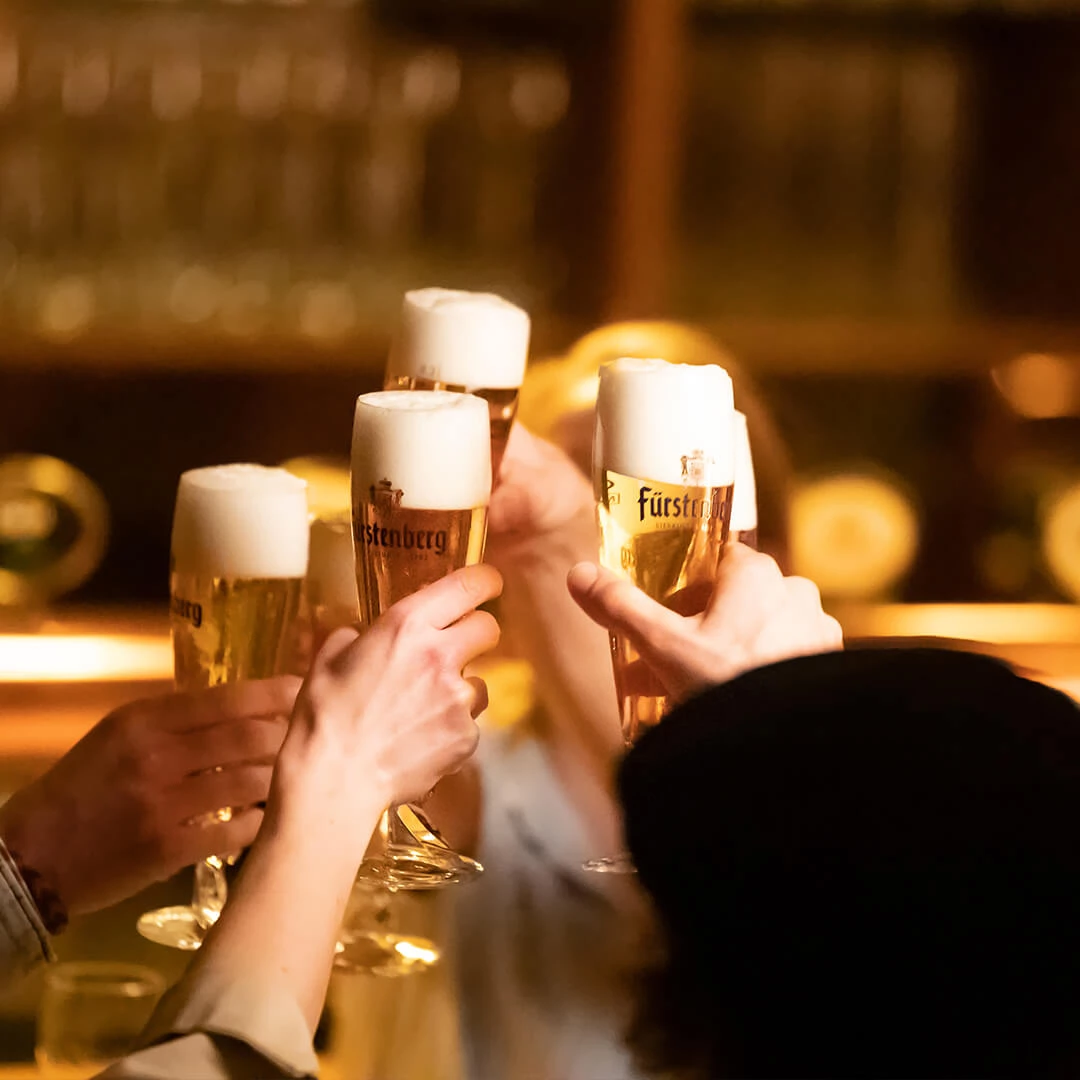
One Big Family
In 2005 the company joined Brau Holding International, one of the biggest brewery groups in Germany, in order to secure the future of the Fürstenberg brewery.
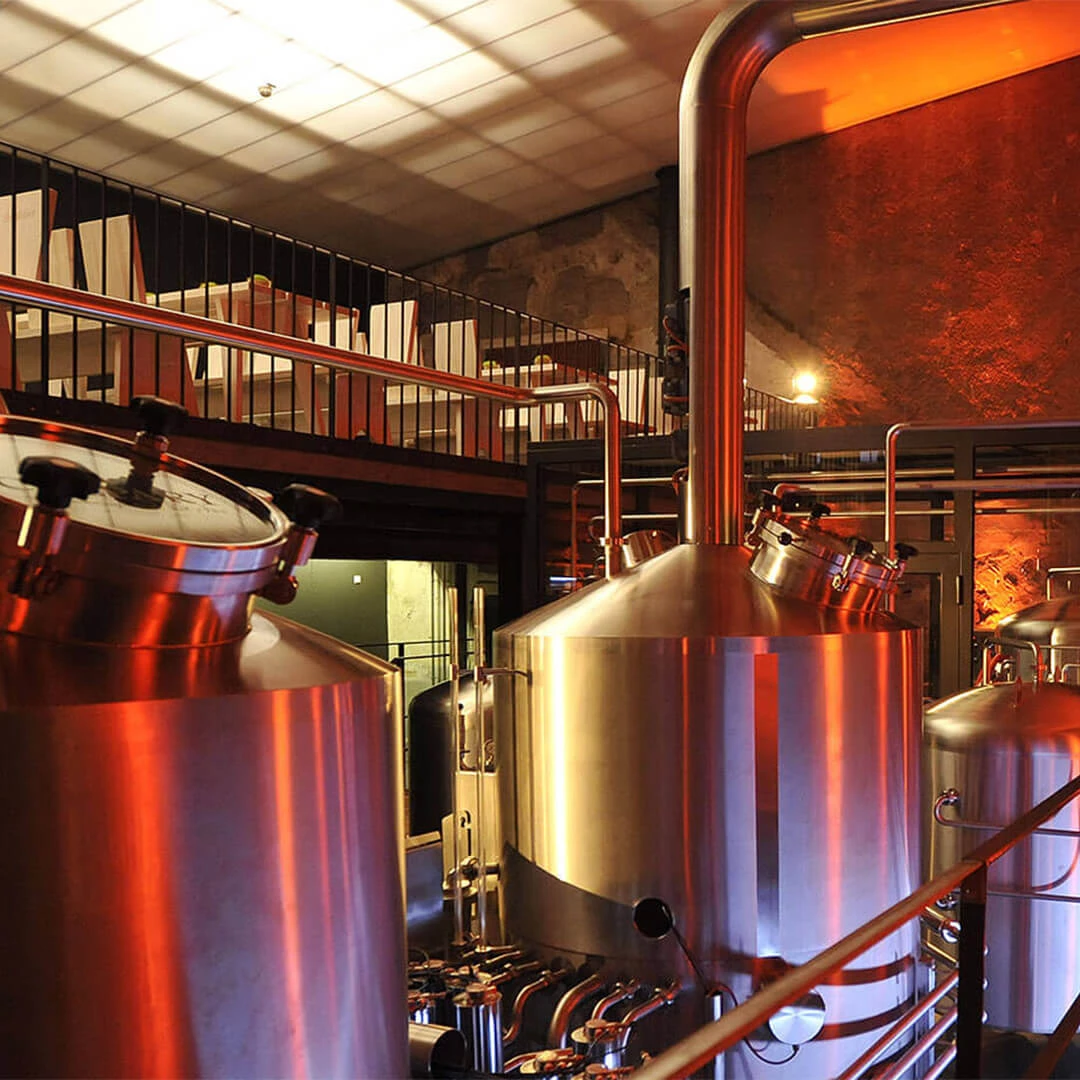
The Fürstenberg "Brauwerk"
The new demonstration brewery produces speciality beers, all of which are based on traditional recipes from the long history of the Fürstenberg brewery and are reinterpreted. Brewing courses and beer seminars are also offered here.
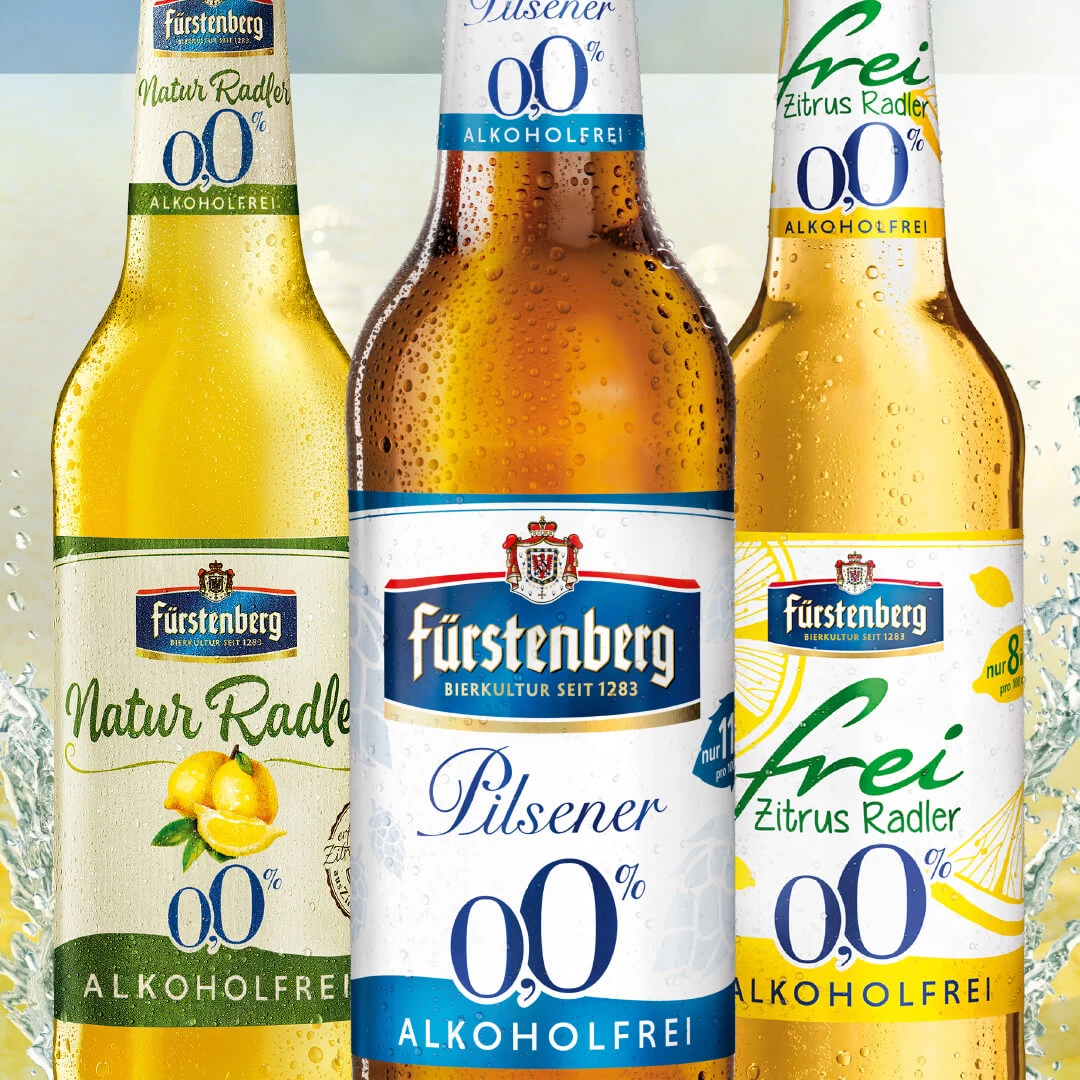
The new non-alcoholic 0.0 %
With the new dealcoholisation plant, beers can now be produced completely without alcohol thanks to a modern production process. The alcohol produced during fermentation is removed in a very complex and particularly gentle process. 0.0% alcohol - 100% flavour.

















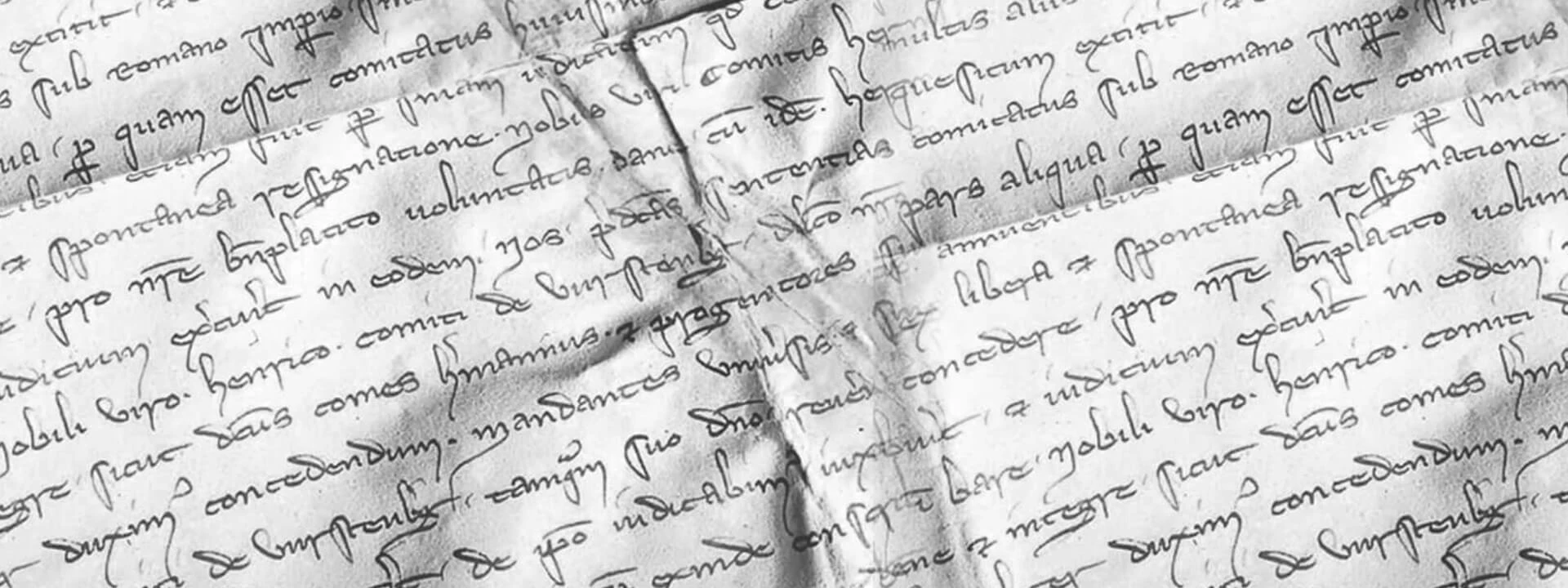
The Birth of Fürstenberg Beer
The 13th century - It was a time of crusades, Marco Polo’s journey to China and the founding of Swiss Confederation... and the date on the official birth certificate of Fürstenberg beer. On January 18, 1283, King Rudolf I von Habsburg granted the lands and rights for Baar and Tunôeschingen - now known as Donaueschingen - in fief to Count Heinrich I von Fürstenberg. This included the right to brew beer and to issue concessions for brewing and serving food and drink and to regulate, tax and levy duties on brewing and the serving of food and drink.
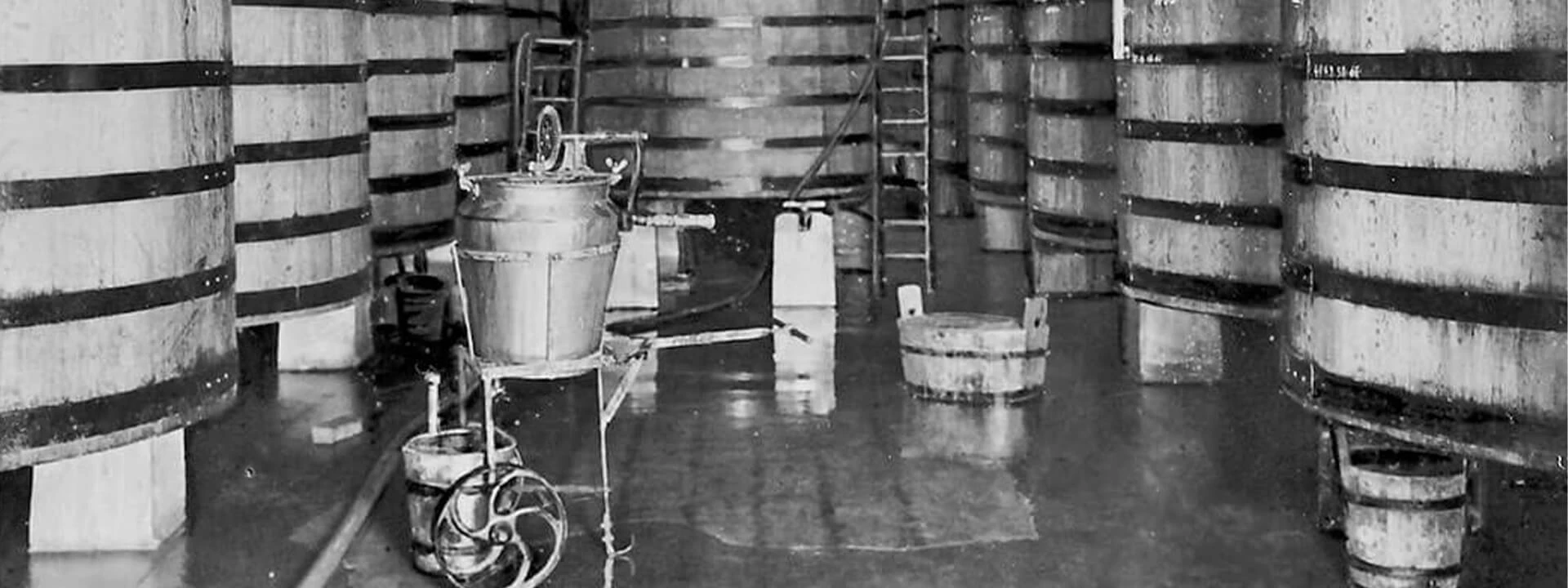
A Brewery with Two Beers
There were three proprietors in Donaueschingen at that time and all three were required to pay a “fee” to the Fürstenbergs for every serving of beer that they sold. The brewery was already producing two different types of beers at that time.
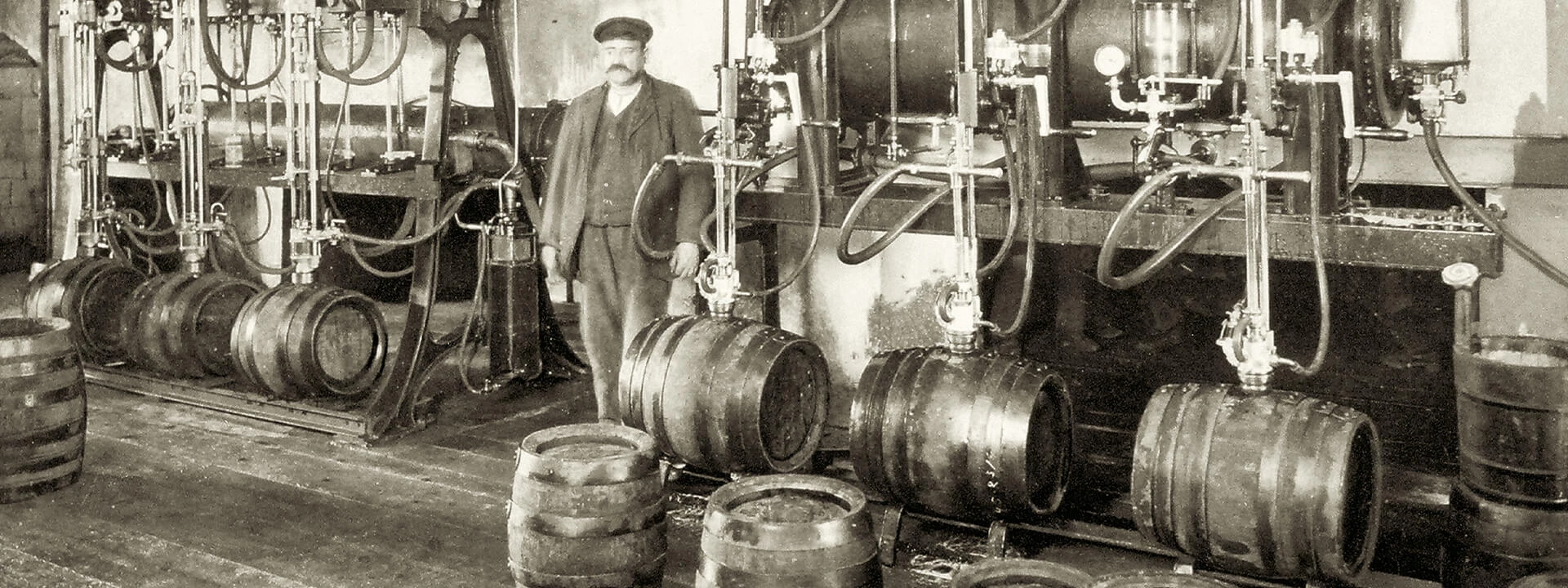
A Break from Beer
Various wars cause grain and malt prices to rise considerably and German beer becomes far more expensive than wine. As a result, the Fürstenberg brewery stops working for five years. Under Prince Anton Egon zu Fürstenberg, beer is brewed again in Donaueschingen, mainly Ordinaribier, a top-fermented wheat beer, as well as Märzen and Doppelbier
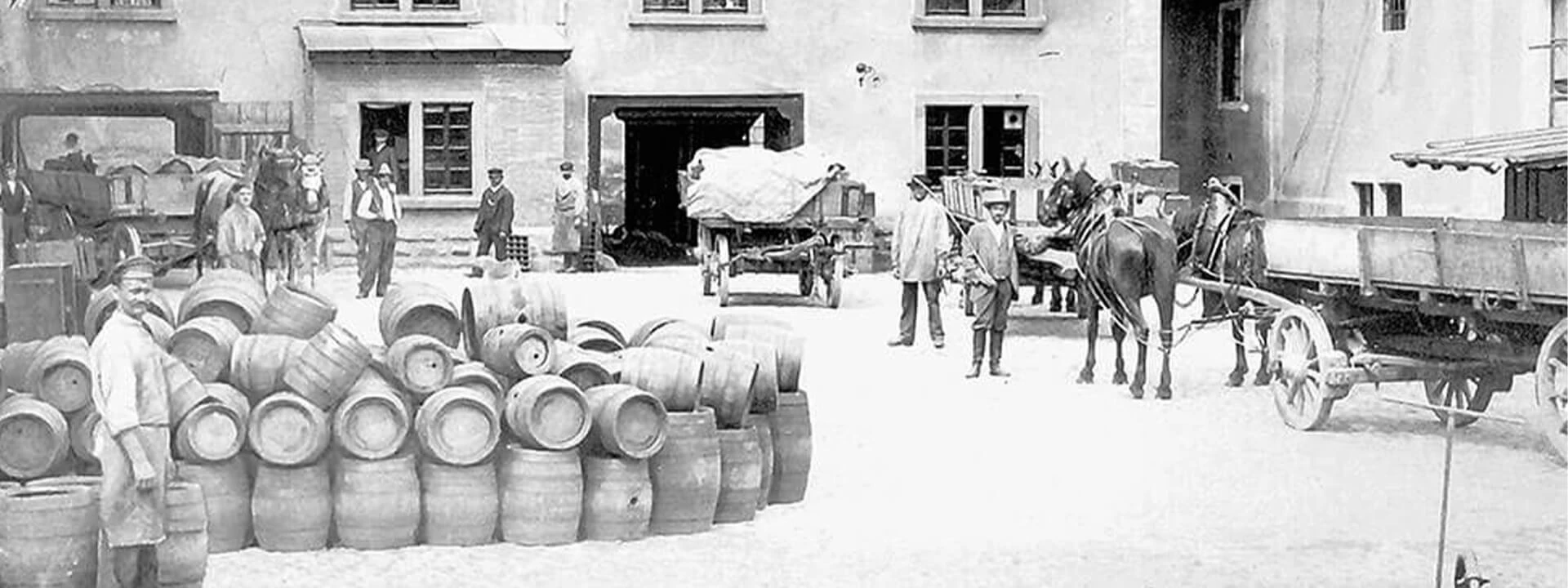
Growth and Rebuilding
After Count Joseph Wilhelm Ernst zu Fürstenberg moved his seat of power to Donaueschingen, the demand for our beer started to grow. Construction of the new brewery began in 1739 and the brewery hasn’t moved since.
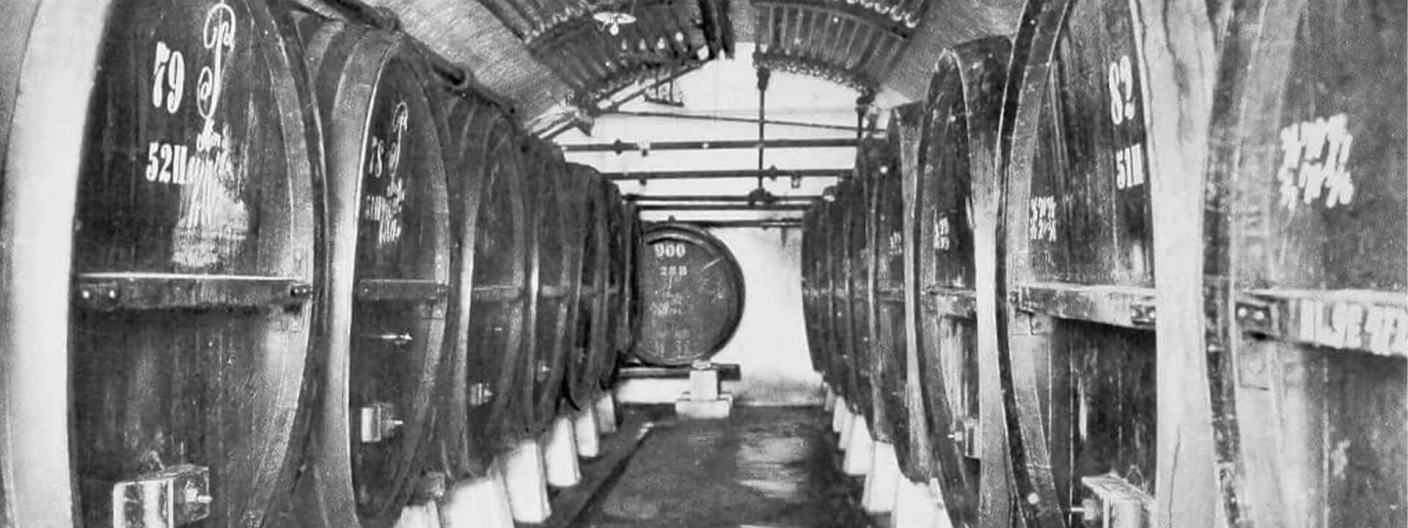
We Create “Luftbier”
For the first time, a top-fermented beer made of wheat and barley malt known as “Luftbier” or “air beer” is brewed. This beer was similar to the wheat beer we brew today. According to historical writings, one reason why this air beer was brewed was “... to produce this tasty drink in order to maintain the full faith and credit of the brewery and to push back against the many breweries that have sprung up nearby that are unable to brew such a beer.” Competitiveness is not a modern invention. Even back then it was important to set yourself apart from the competition. Additionally, only “local” barley has been used at the brewery since the year 1801. Fürstenberg has sourced its ingredients from the region for more than 200 years. This not only helps promote the regional economy, but also helps protect our environment.
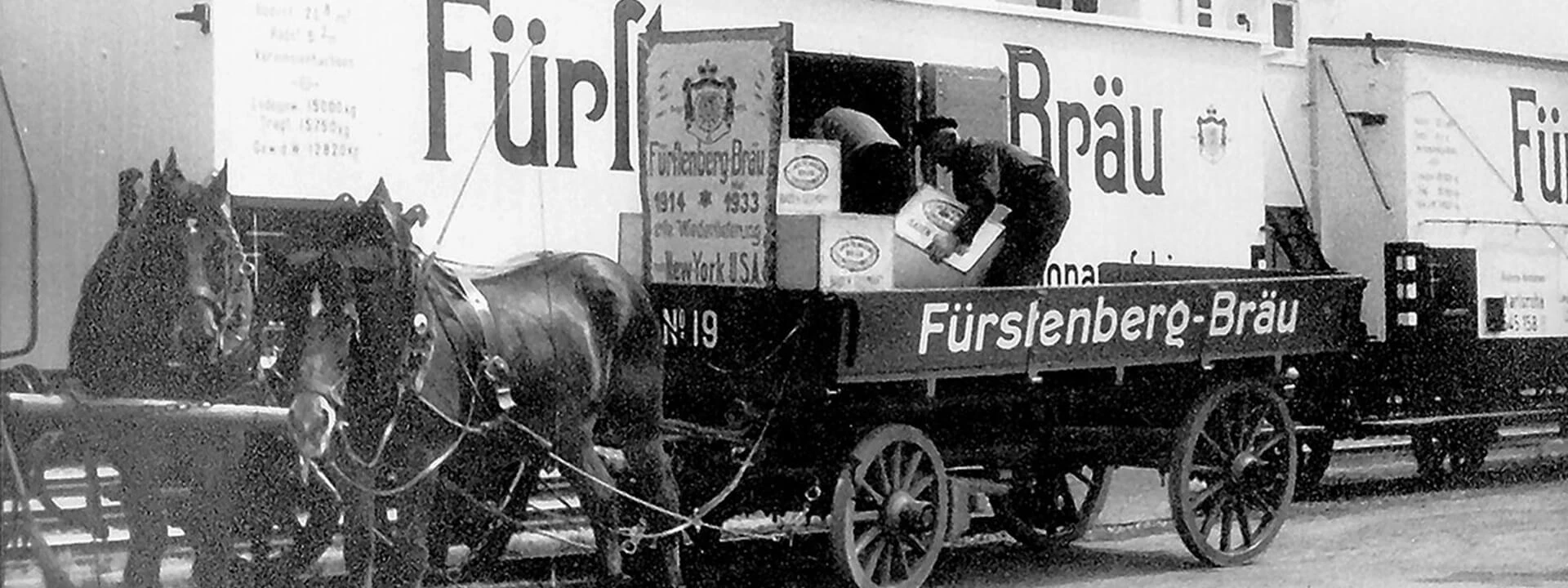
Fürstenberg Conquers Europe
In 1868 the railroads came to Donaueschingen. The brewery was finally able to cut transport costs and expand its distribution. The first exports were sent off to Switzerland. And it wasn’t long before Fürstenberg beer was available in Paris.
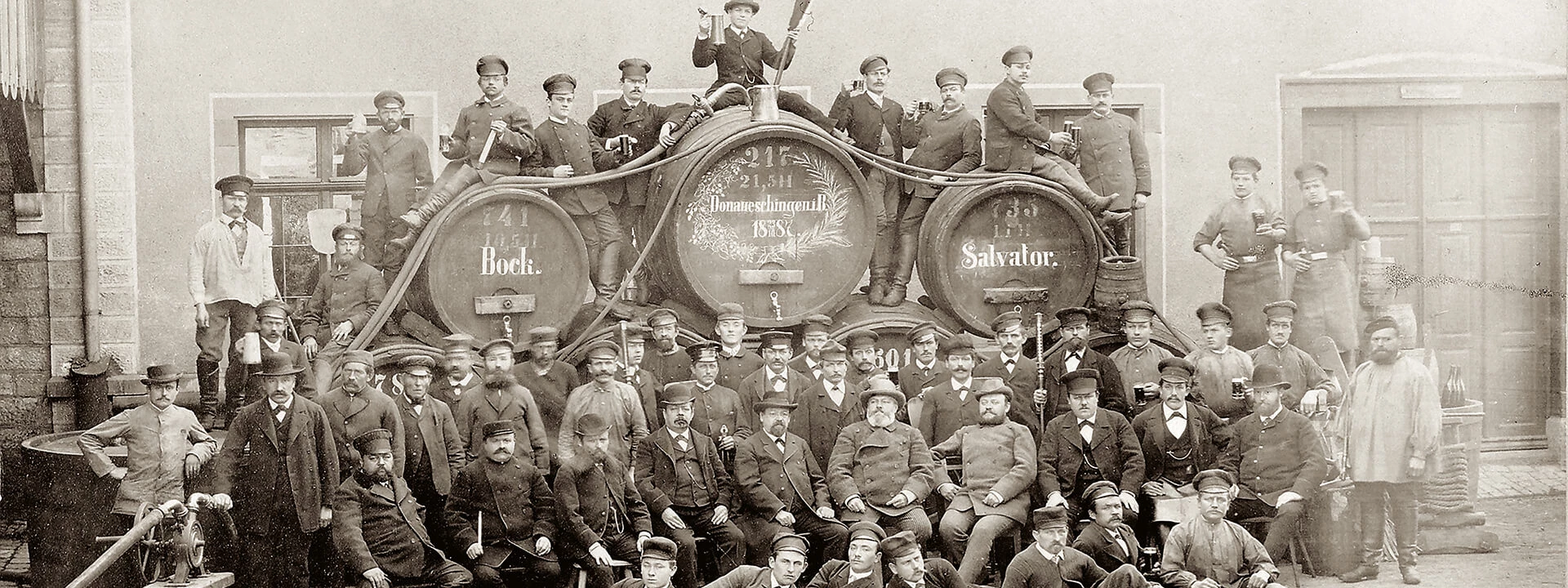
Bismarck’s Favorite
The Fürstenberg Brewery got a very innovative new master brewer when Josef Munz came on board. Two years after joining the brewery, he discovered a way to make a specialty beer. This gold-colored, Vienna-style brew known as “Salvator” or “Danubia Export Beer” found fans from Germany to Brazil. Reich Chancellor Bismarck named it his favorite drink. His personal physician, Dr. Schweninger, called it the “beer of beers” and a German spiritual leader even went so far as to call it “the true drink of the gods”.
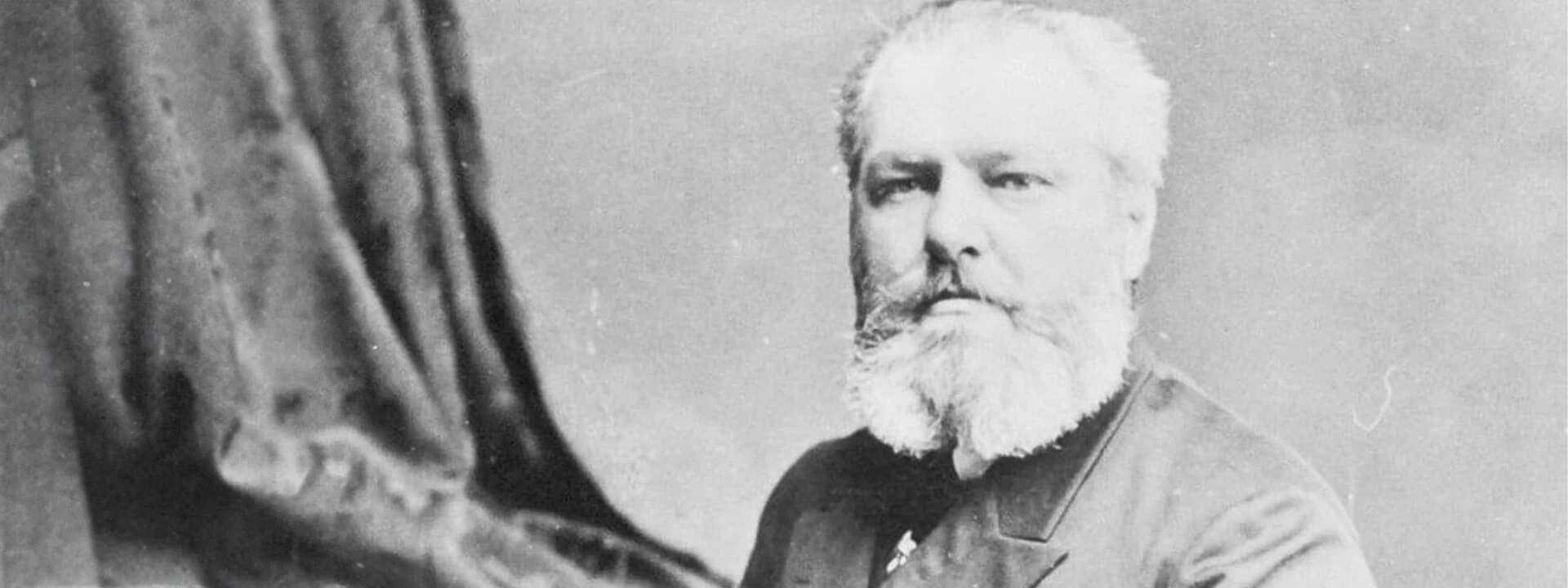
The Birth of Premium Pilsener
Josef Munz is one of the first brewers in Germany to successfully brew a pilsener beer. Originally called the “Bohemia” and then “Pale Fürstenberg Brew”, it is now known as our “Premium Pilsener”. This light lager is made of the finest barley, the best hops and the extraordinarily soft water from the brewery’s own sprin
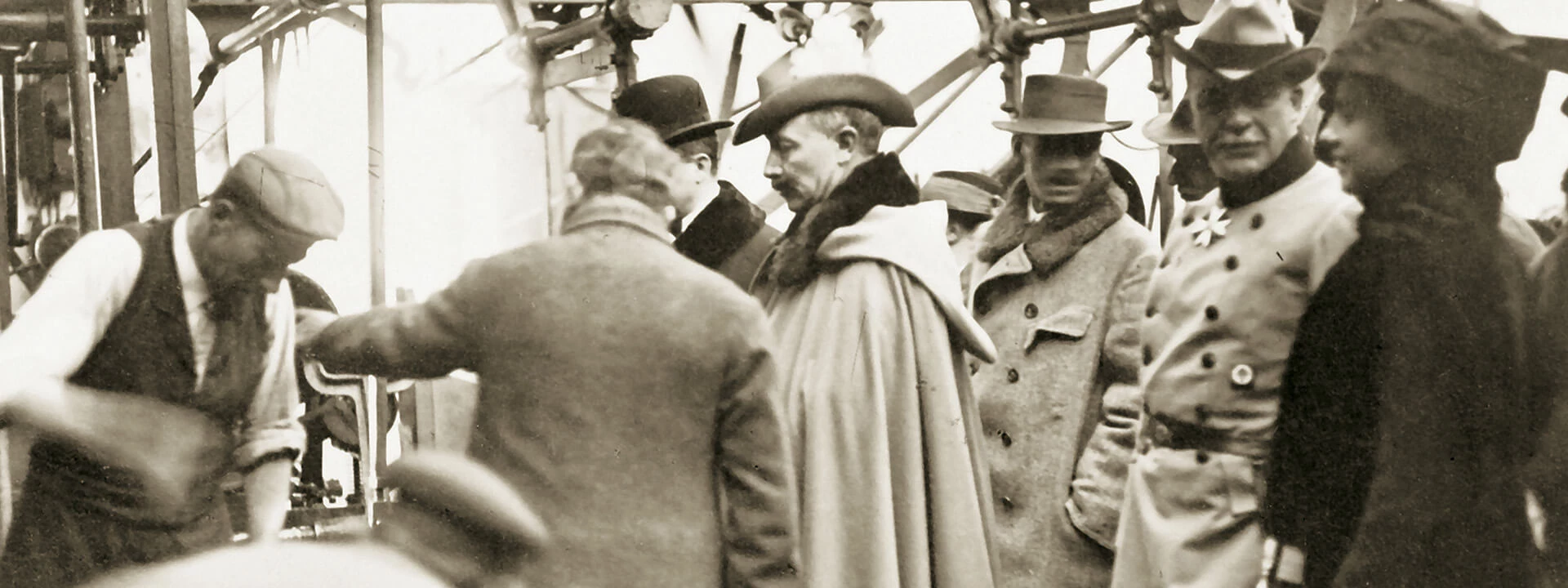
His Majesty’s Beverage
In April of 1900 Emperor Wilhelm II arrived in Donaueschingen. He enjoyed the Fürstenberg Brew so much that he designated it his go-to drink, which was how it got its honorable title of “His Majesty’s Beverage.” After receiving such noble recognition, Fürstenberg grew into a major brewery and was soon delivering beer to more than 900 bars and restaurants in all of Germany. The brewery’s products were also sold in the Netherlands, Britain, France, Belgium, Italy and Switzerland. Major shipping companies, the Imperial Navy and the colonial administration bodies in Africa regularly purchased Fürstenberg beer. Even the zeppelin lines carried Fürstenberg on board.
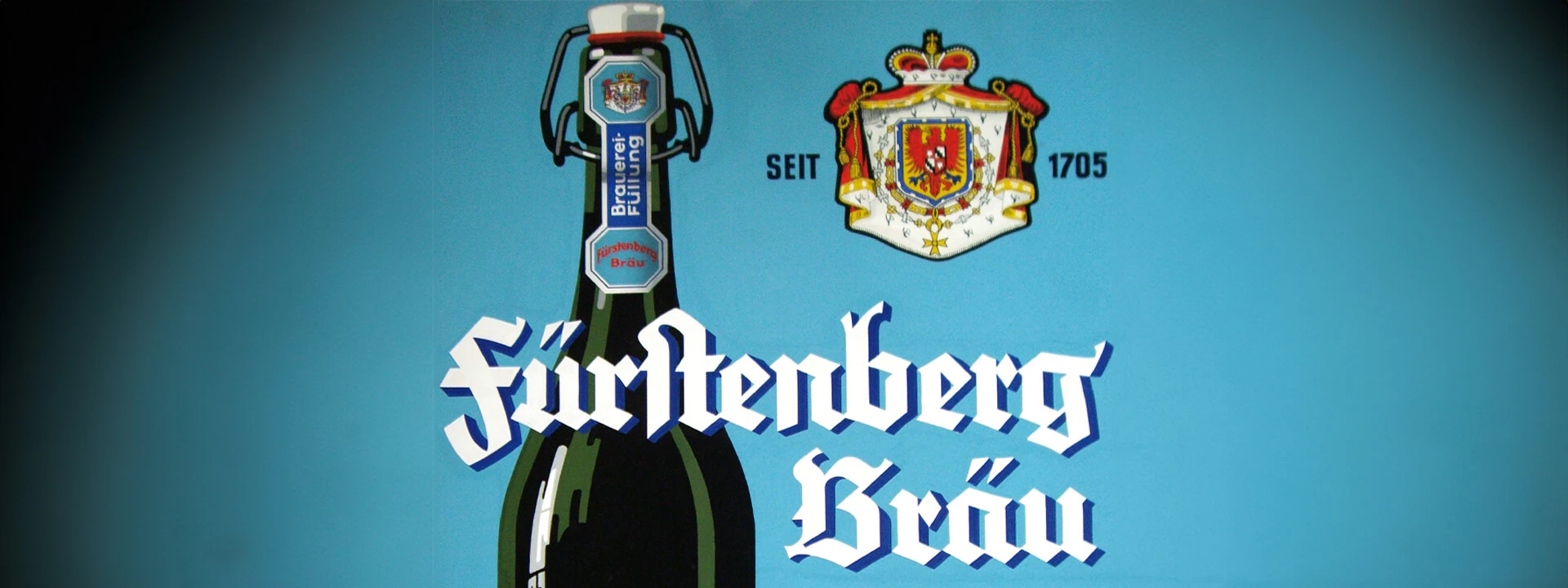
“Gold Rush”
The two world wars caused a major setback in the brewery’s growth, but things started to pick up again afterwards. In 1953 the brewery introduced a new beer, the “Gold Special Beer,” which was the forerunner of today’s Premium Lager. The product line also included the pale “Fürstenberg Brew,” the dark “Antonius Brew,” the “Gustator” lager and the “March” beer with the red Vienna markings.
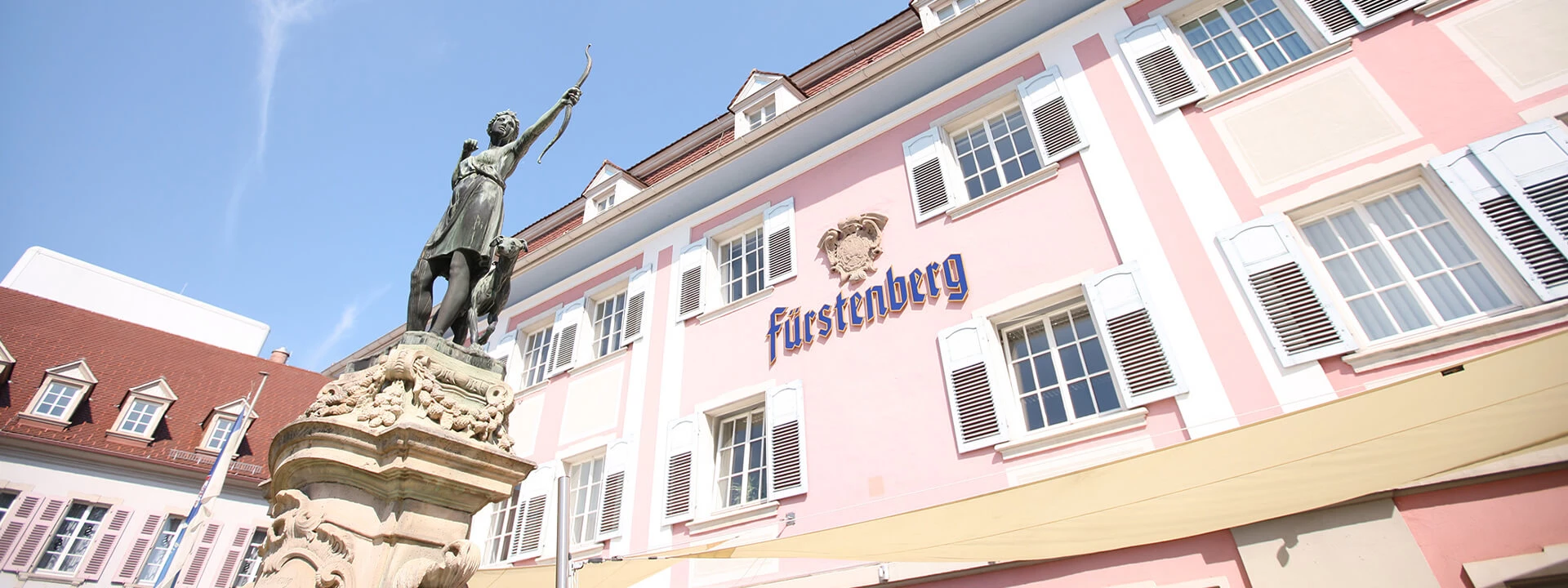
„Fürstenberg is Premium“
Fürstenberg Pilsener is one of the few German beers to receive the honorable “Premium” distinction. During the 80s Fürstenberg continued its tradition of innovation and introduced “Fürstenberg Free,” one of the first non-alcoholic beers in Germany.
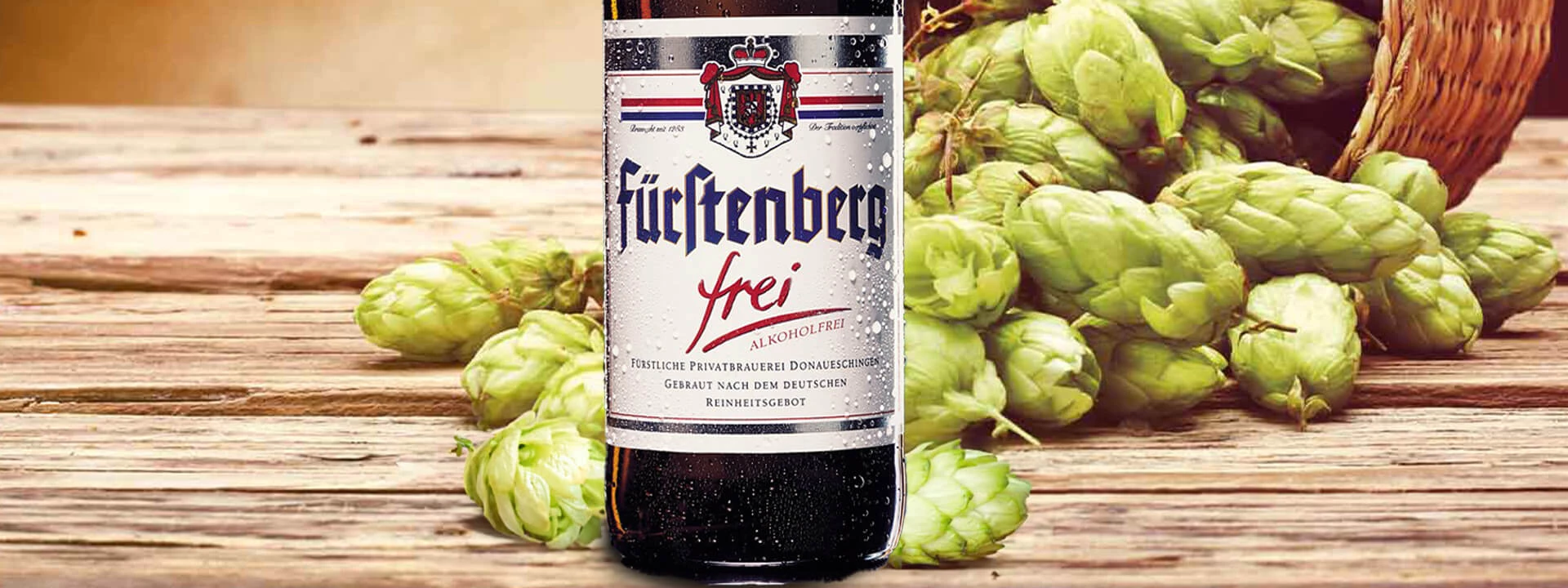
Fürstenberg alcohol-free
In the 1980s, the Fürstenberg Brewery continues to be innovative as usual and in 1988 Fürstenberg Frei is launched, one of the first non-alcoholic beers in Germany.
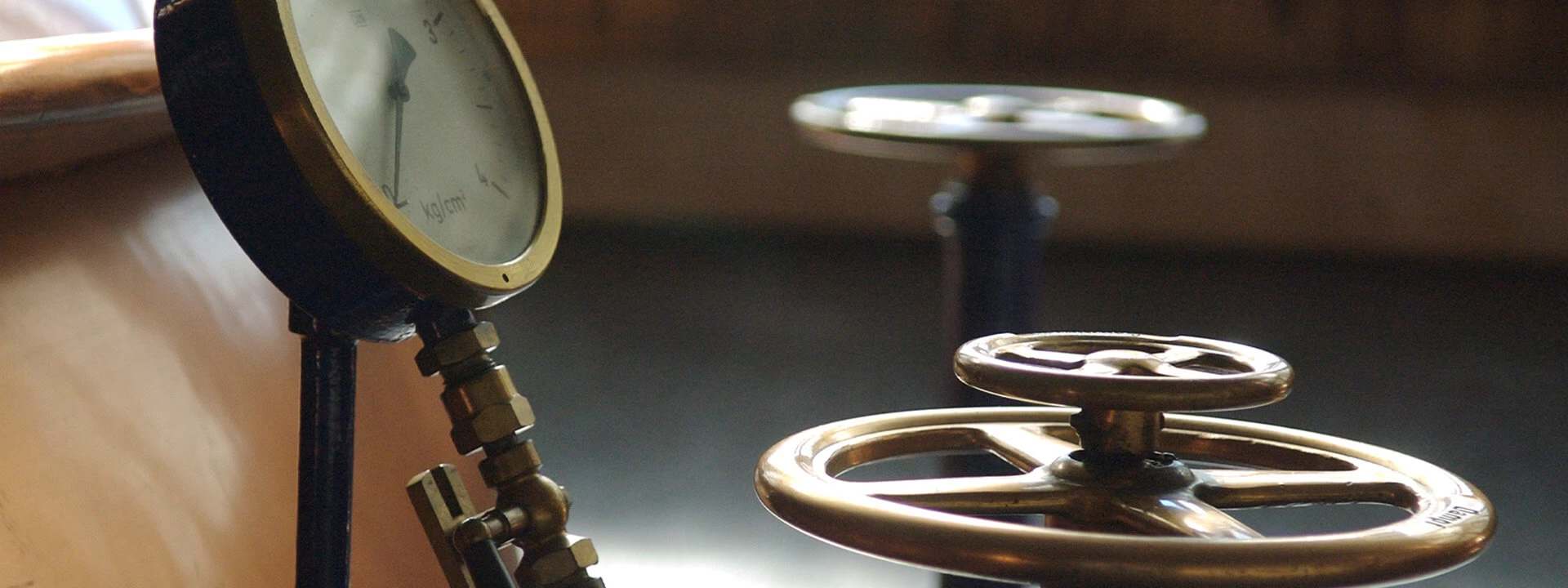
First Certifications
In 1993 Fürstenberg became one of the first German brewing companies to receive DIN EN ISO 9001 certification for its quality management system. Certification for its environmental management system based on the Eco-Audit Regulation followed one year later.
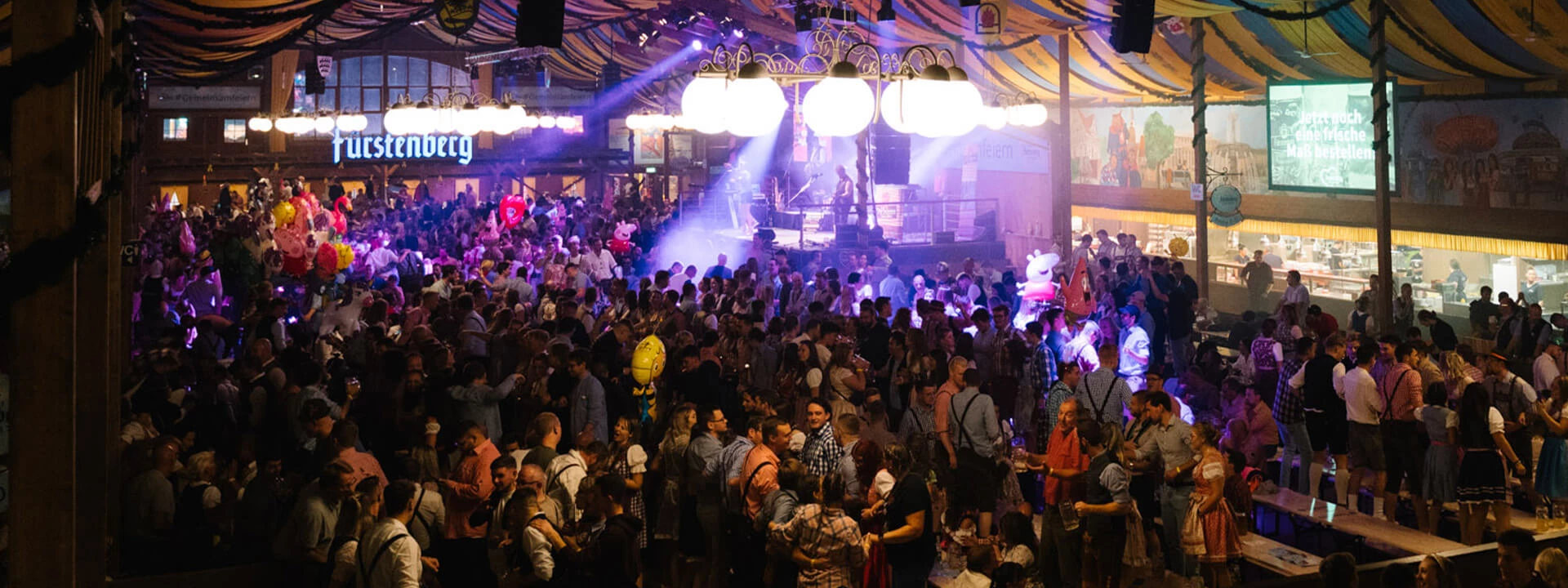
Head to the Wasen
Fürstenberg is the only brewery from Baden to be represented at the Cannstatter Volksfest for the first time. Thanks to the great commitment of the brewery and the marquee operators, the Wasen has since been able to record a considerable increase in visitors, particularly from the southern Baden region. The Fürstenberg tent quickly established itself as a permanent fixture at the Volksfest and continues to delight the many visitors from Germany and around the world to this day.
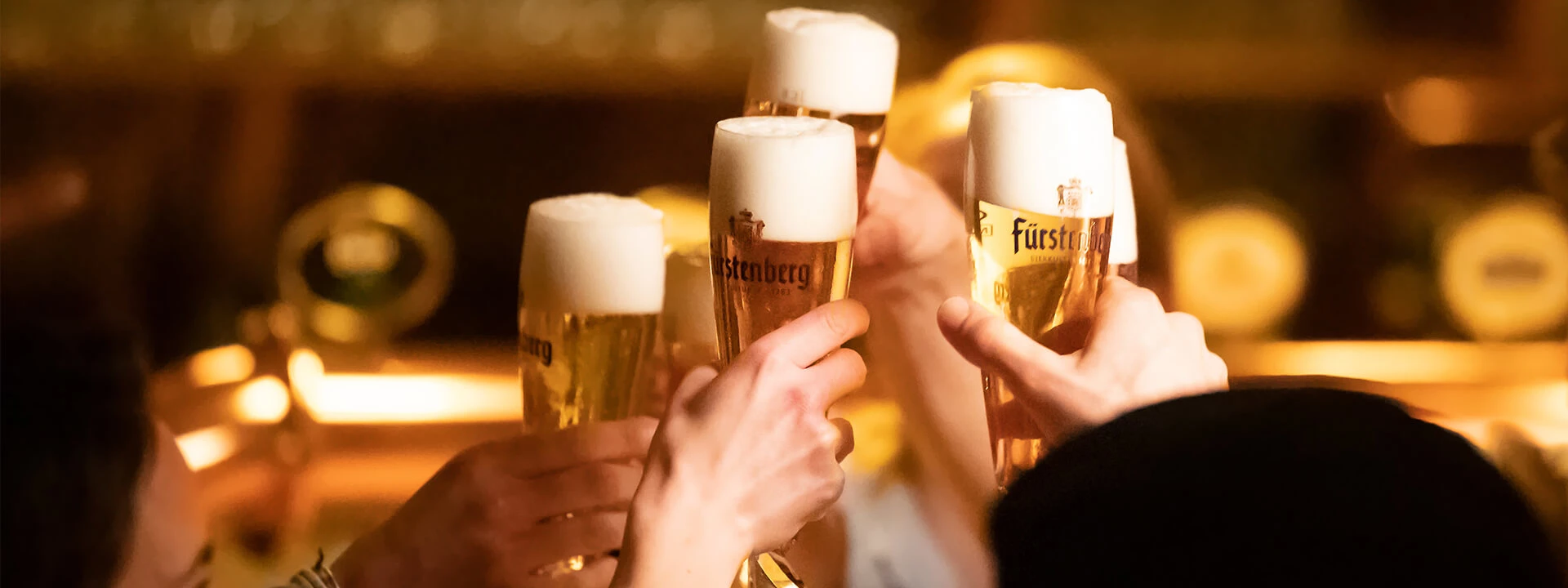
One Big Family
In 2005 the company joined Brau Holding International, one of the biggest brewery groups in Germany, in order to secure the future of the Fürstenberg brewery.
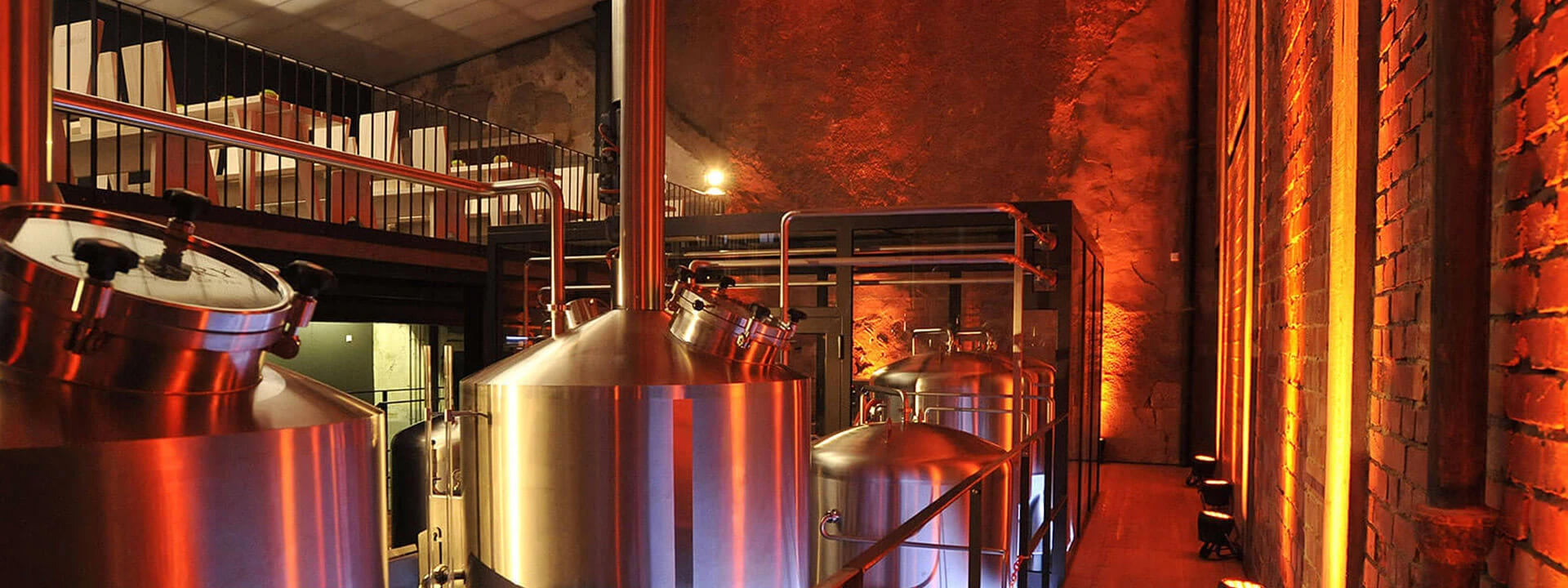
The Fürstenberg "Brauwerk"
The new demonstration brewery produces speciality beers, all of which are based on traditional recipes from the long history of the Fürstenberg brewery and are reinterpreted. Brewing courses and beer seminars are also offered here.
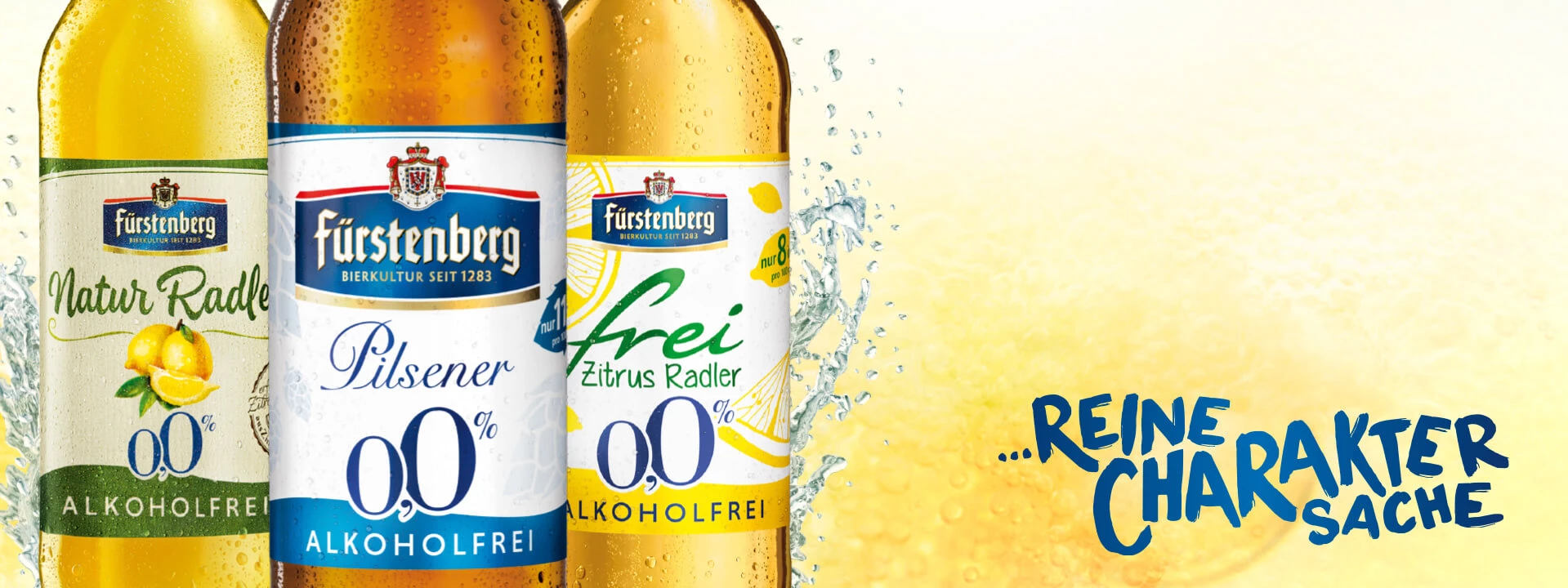
The new non-alcoholic 0.0 %
With the new dealcoholisation plant, beers can now be produced completely without alcohol thanks to a modern production process. The alcohol produced during fermentation is removed in a very complex and particularly gentle process. 0.0% alcohol - 100% flavour.
Commitment
Sustainability
Anyone who, like us at Fürstenberg, can look back at a 740-year history can probably tell you a thing or two about responsible and sustainable actions.
Over the centuries we Fürstenbergers have developed the art of ensuring continuity and farsightedness in the management of our brewery. We do it for the benefit of the people, for the environment and for a future that is worth living for the generations to come.
To us, sustainability means much more than simply protecting the environment.
It is a core element of how we manage our company and extends to everything we do.
Premium Quality
We brew premium beer and make a point of providing quality at the highest level. Our quality standards are the opposite of the principles of mass production. We offer a superior product at a fair price.
Every one of our processes is clearly structured and defined. We are certified and adhere to a management system that meets the internationally recognized ISO 9001, ISO 14001 and ISO 50001 standards.
Sustainable Use of Production Resources
Water, hops and malt: Our brewery runs on nature. We use all of our resources, from the materials we use in our production to the energy that powers our brewery, as efficiently as possible. This allows us to actively contribute to reducing and preventing any negative impacts on the quality of our product or on our environment.
We produce very little waste and constantly strive to improve our recycling rate.
The Fürstenberg Brewery also undertakes to continuously improve its energy and environmental footprint.
Regional Materials and Partners Close By
We source most of our ingredients from southern Germany and seek out business partners and suppliers who are close to us. Regional value creation is both our goal and a principle by which we conduct our business.
Sustainable Human Resource Policies
We are a recognized training company and develop our expert personnel in-house. And many of them are happy to stay with us for many years: Decades of loyalty and commitment to the company are the norm here at Fürstenberg.
Social Responsibility
Beer is a widely available product and a part of our culture that we can't imagine living without.
We believe that the vast majority of people consume beer responsibly. This is why we are against any condemnation of beer in general.
We are committed to promoting the responsible consumption and handling of beer and take part in targeted measures to fight alcohol abuse. Our actions are guided by the following principles. We also make sure that our partners in retail and the food service follow these same principles.
-
We stand for enjoying beer responsibly. We promote the responsible consumption and handling of beer and educate consumers on the basic rules for enjoying beer responsibly.
-
We fight alcohol abuse. We actively fight against alcohol abuse by promoting prevention and education. We are open to partnering with civic and government groups that also fight alcohol abuse.
-
We are against drinking and driving. We call on everyone to say no to alcohol when driving.
-
We support the laws to protect minors. We support our retail and food service distribution partners in complying with laws that protect minors, especially those relating to enforcing the legal drinking age.
-
We advertise responsibly. We do not target minors with our beer ads. We do not use any advertising messages that primarily target minors and do not advertise on media that are primarily targeted towards minors. Our policies for advertising and all other brand communication directed towards consumers comply with the German Advertising Council's behavioral guidelines for commercial communication for alcoholic beverages.

